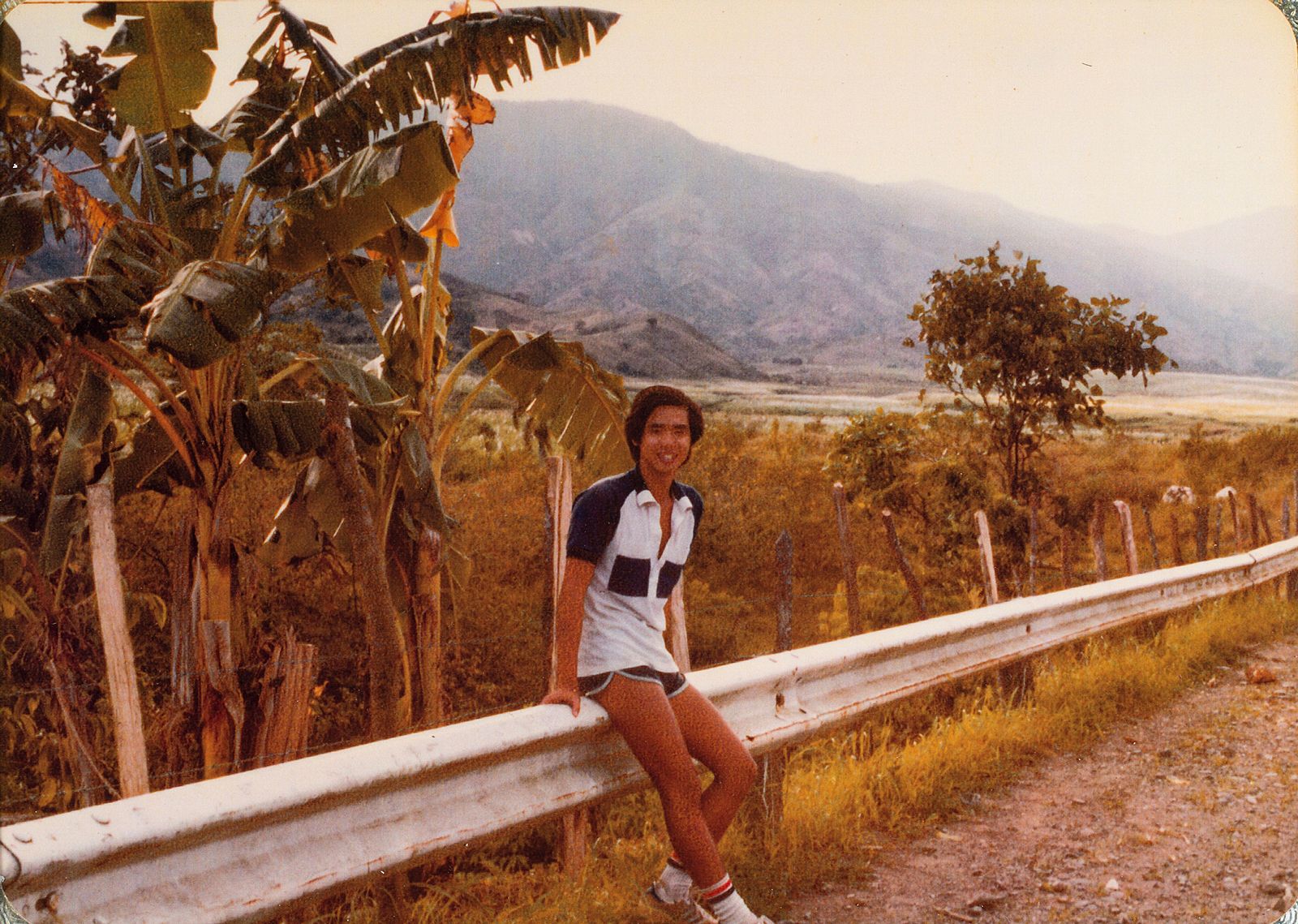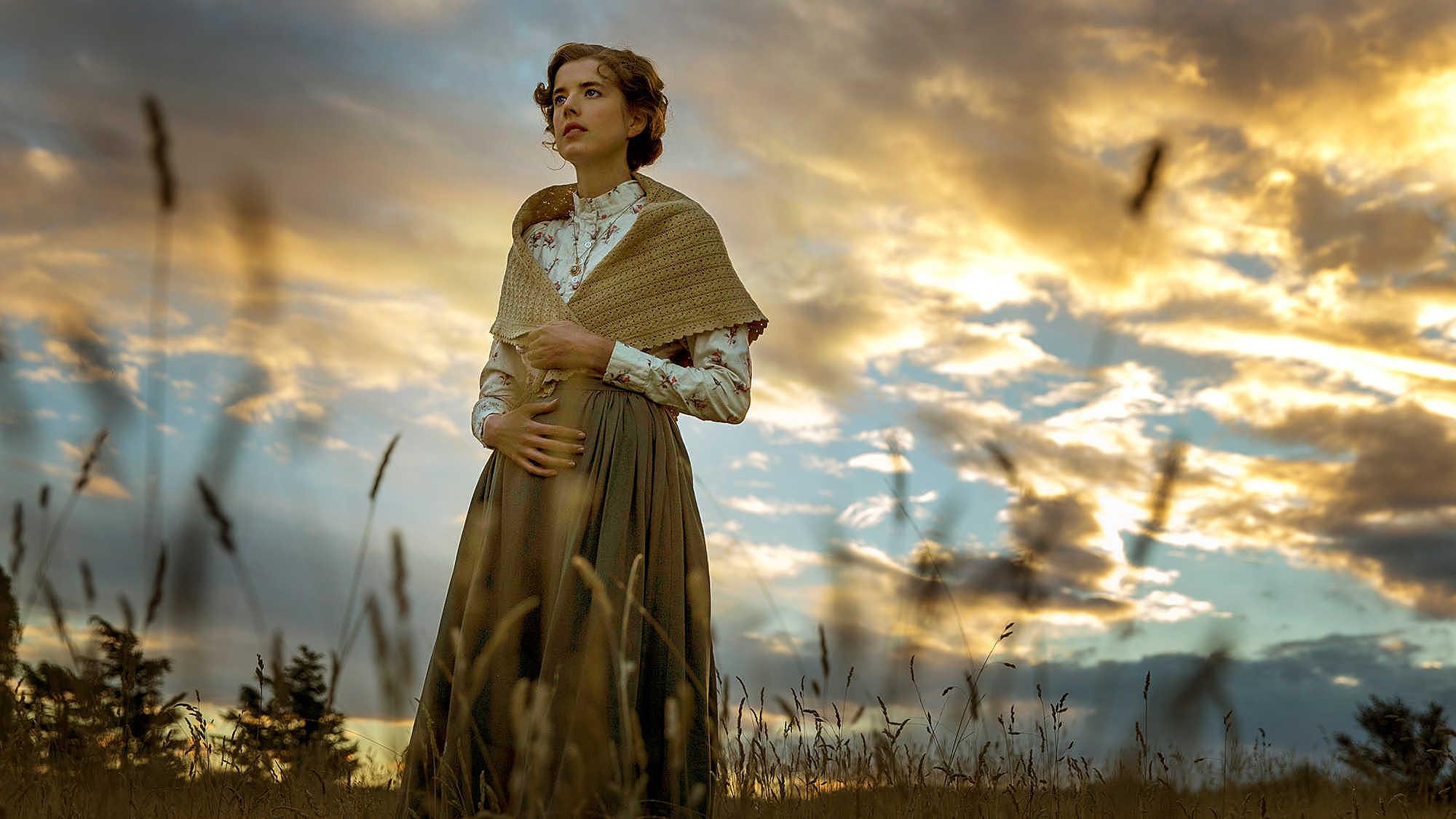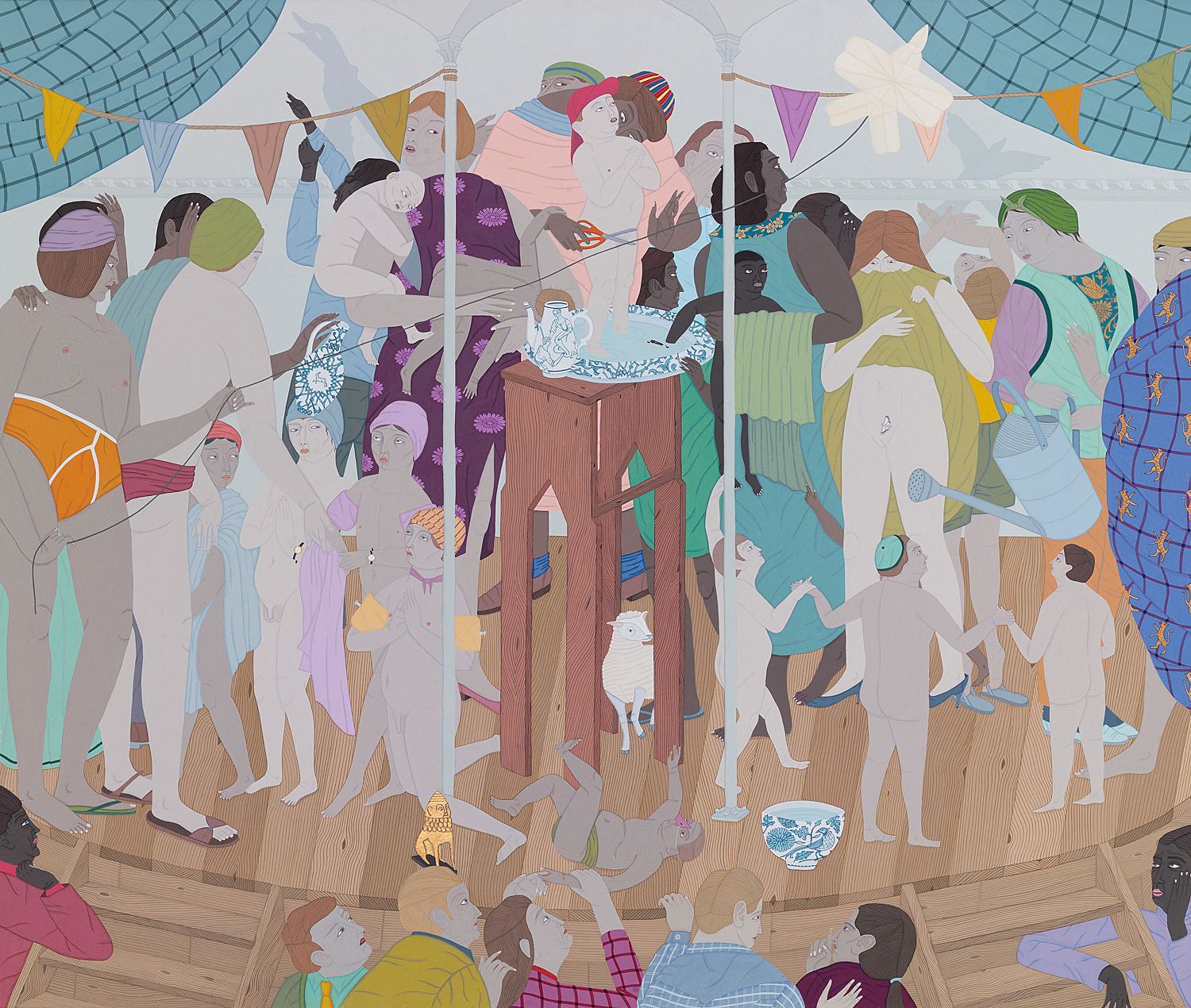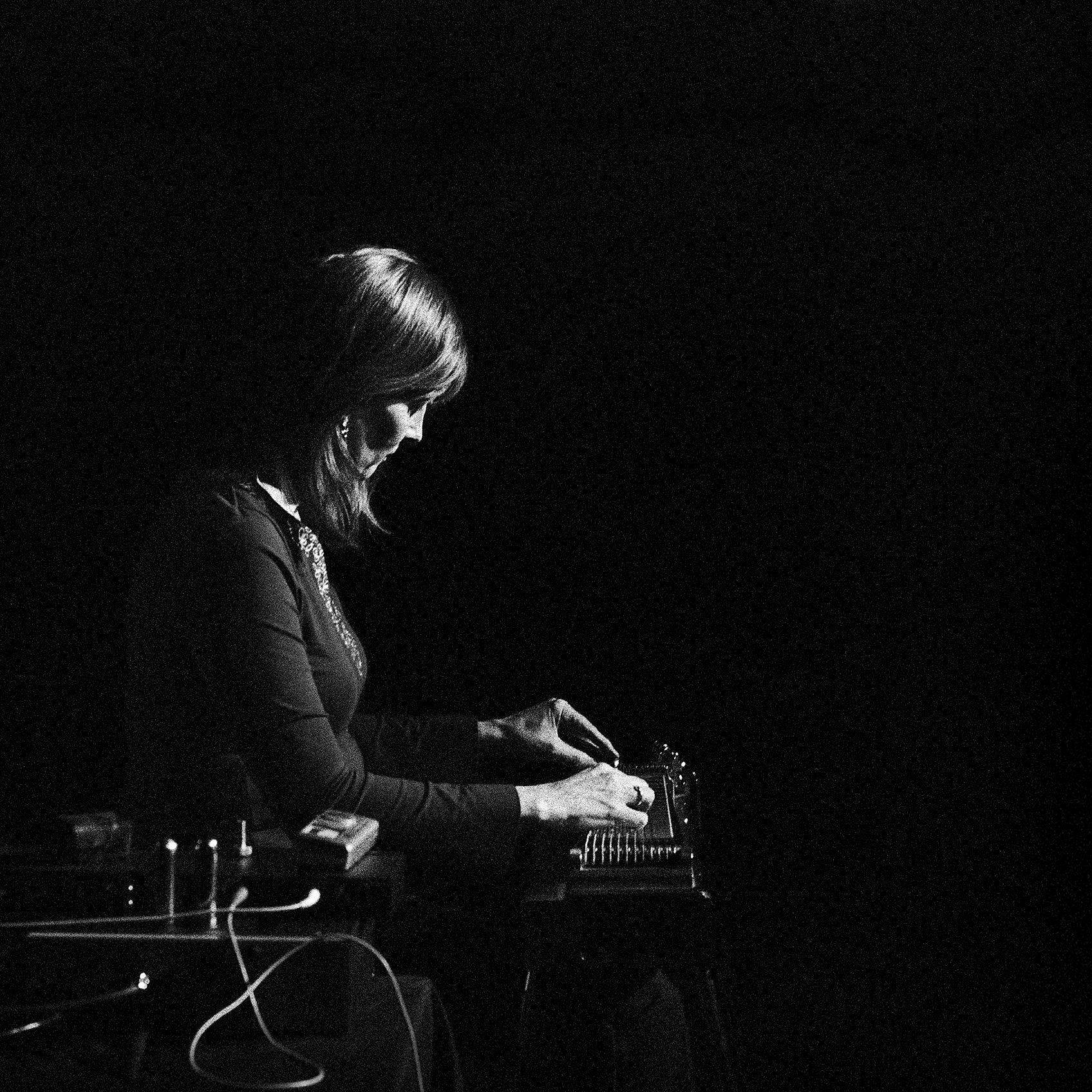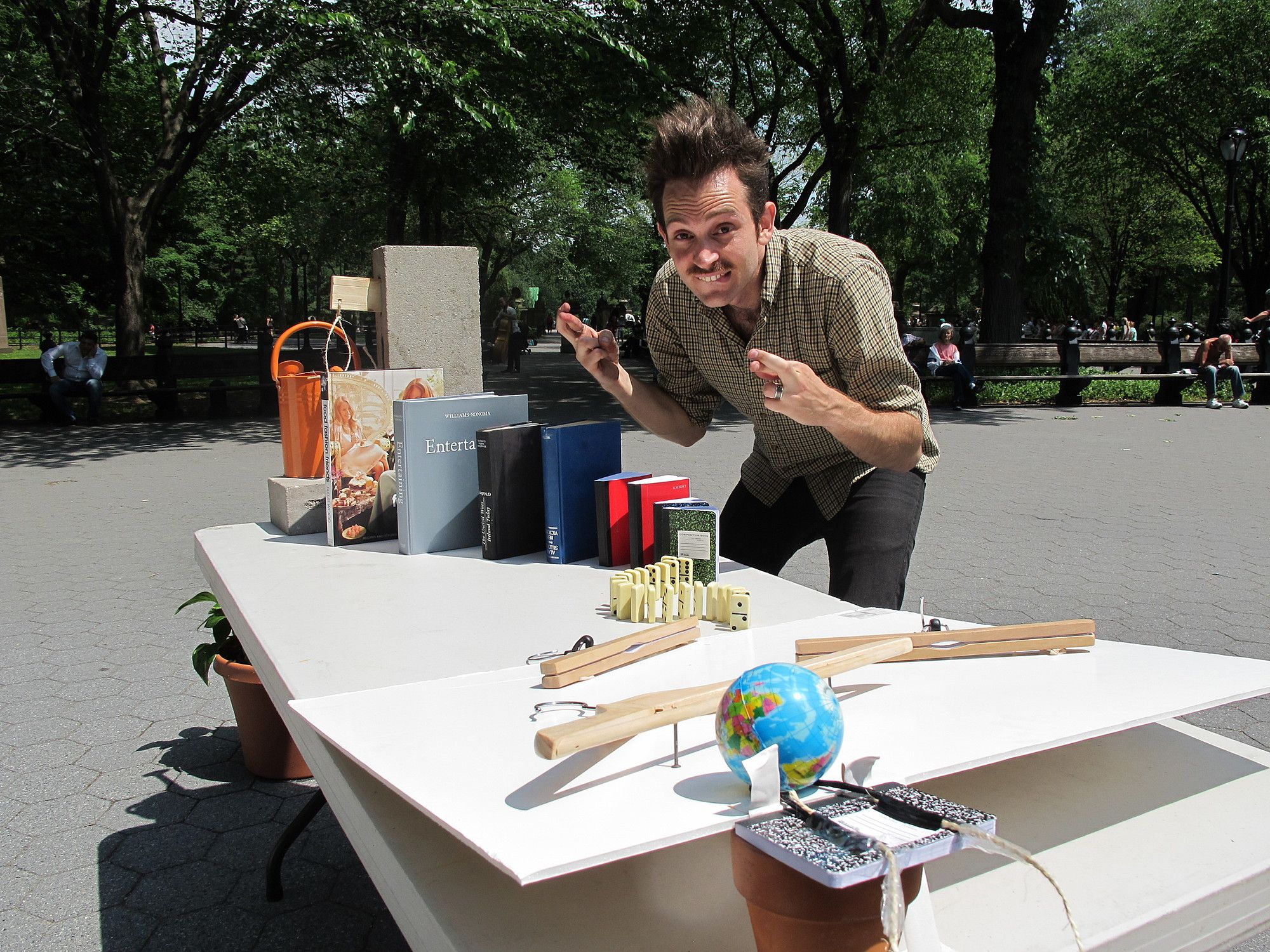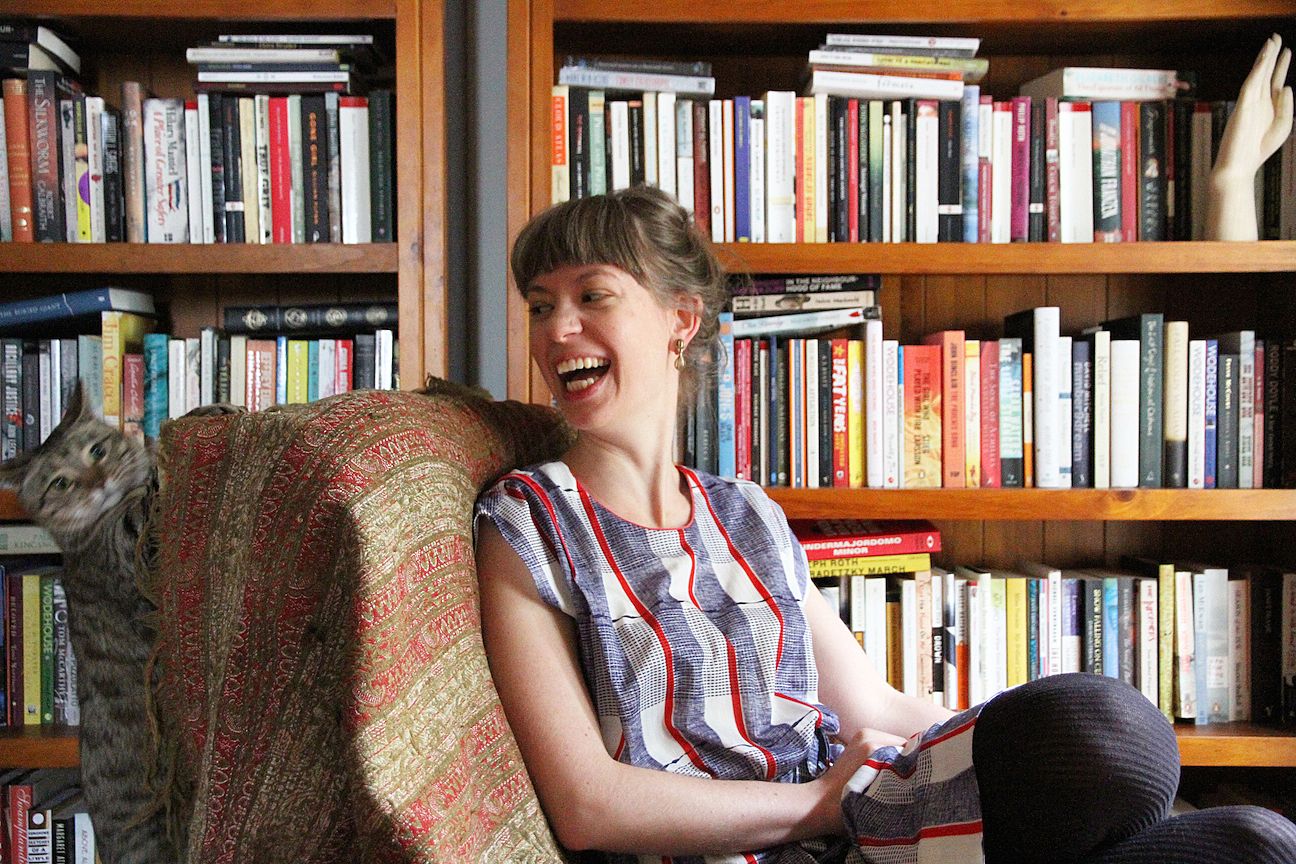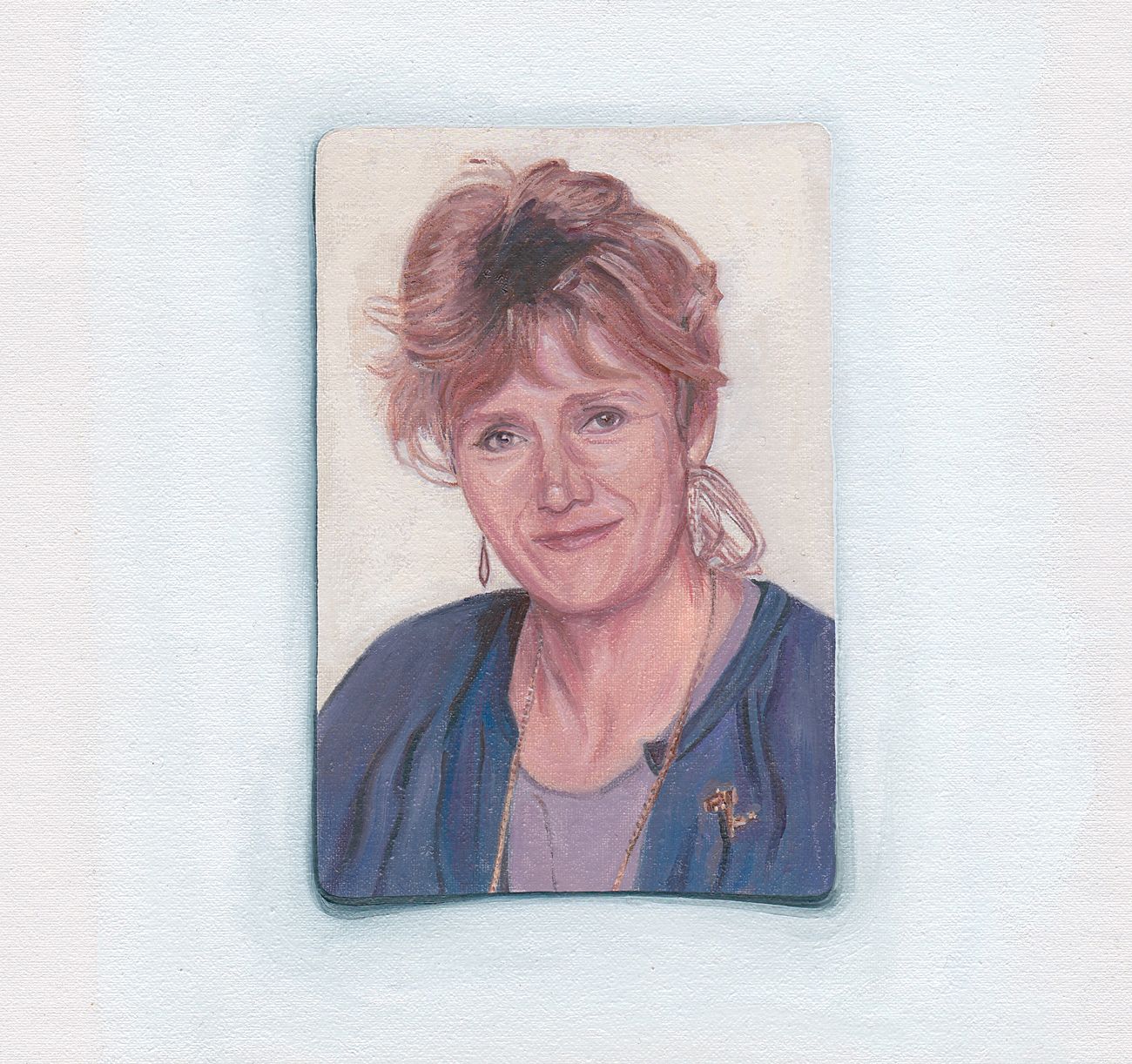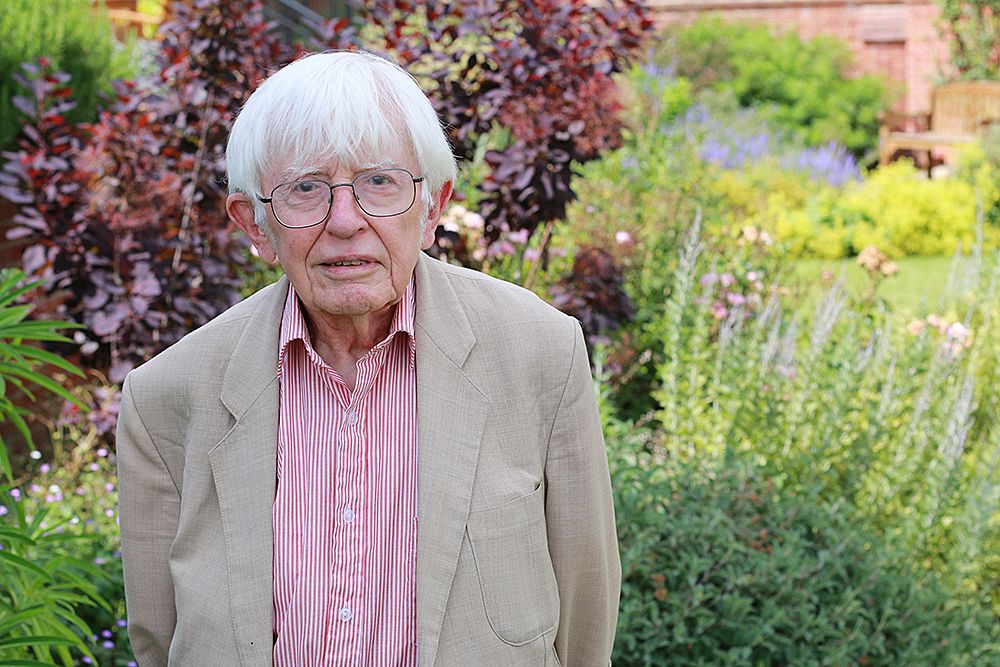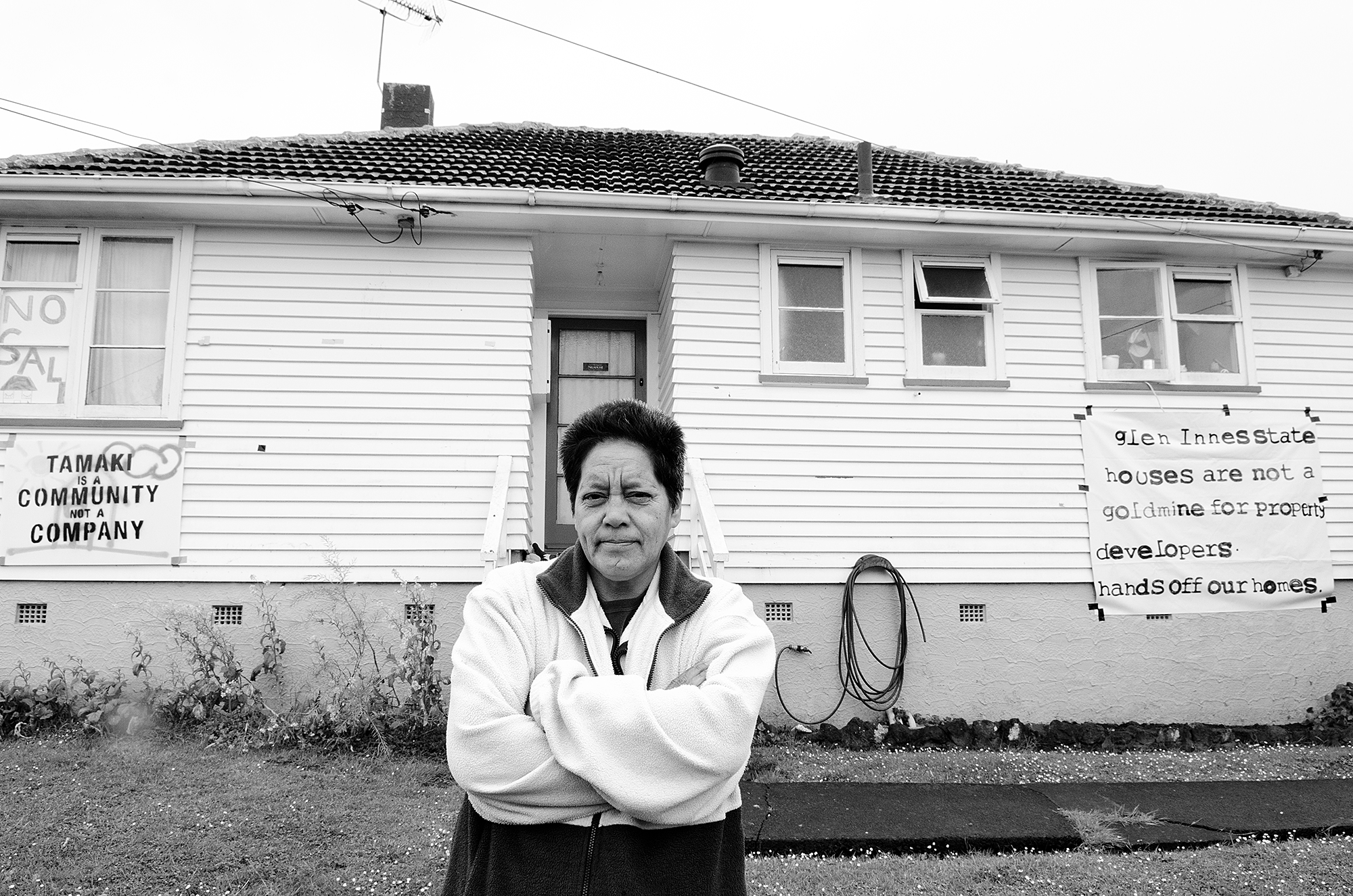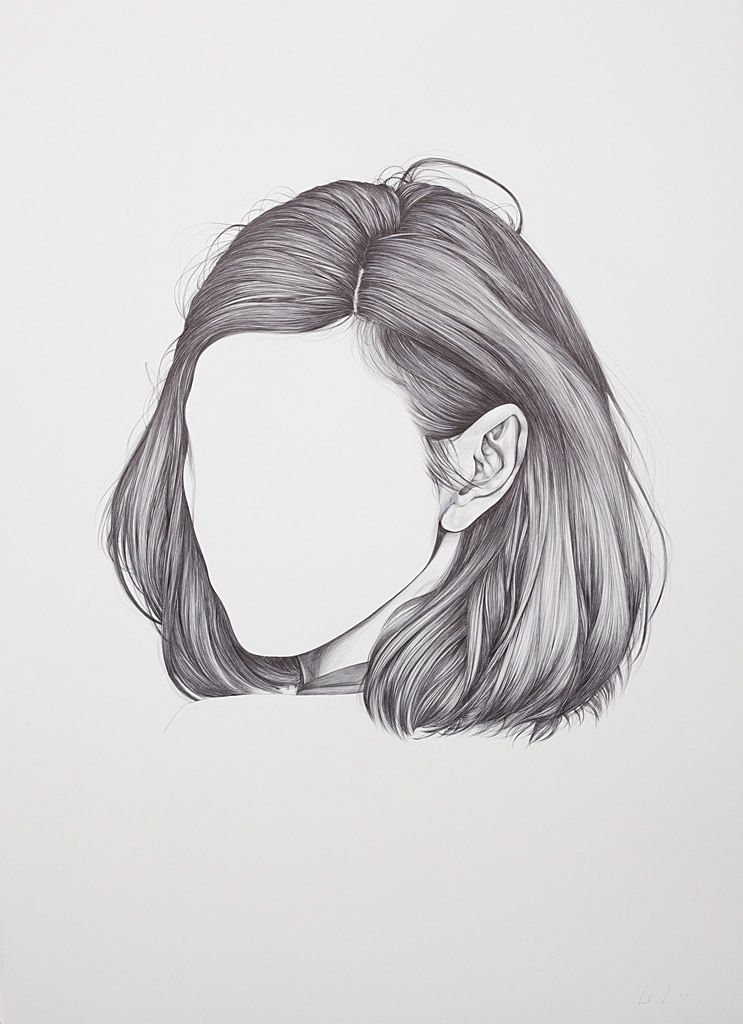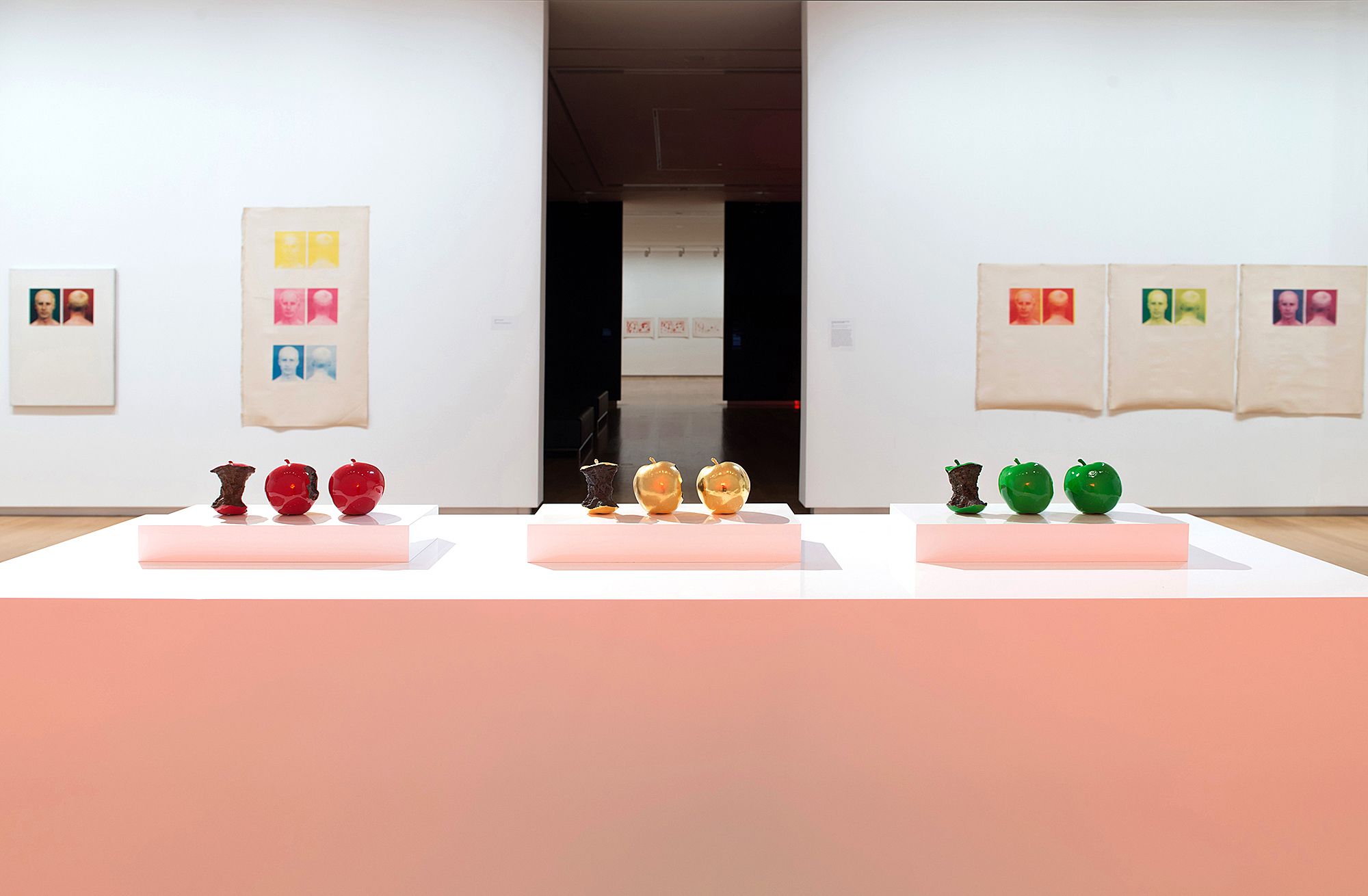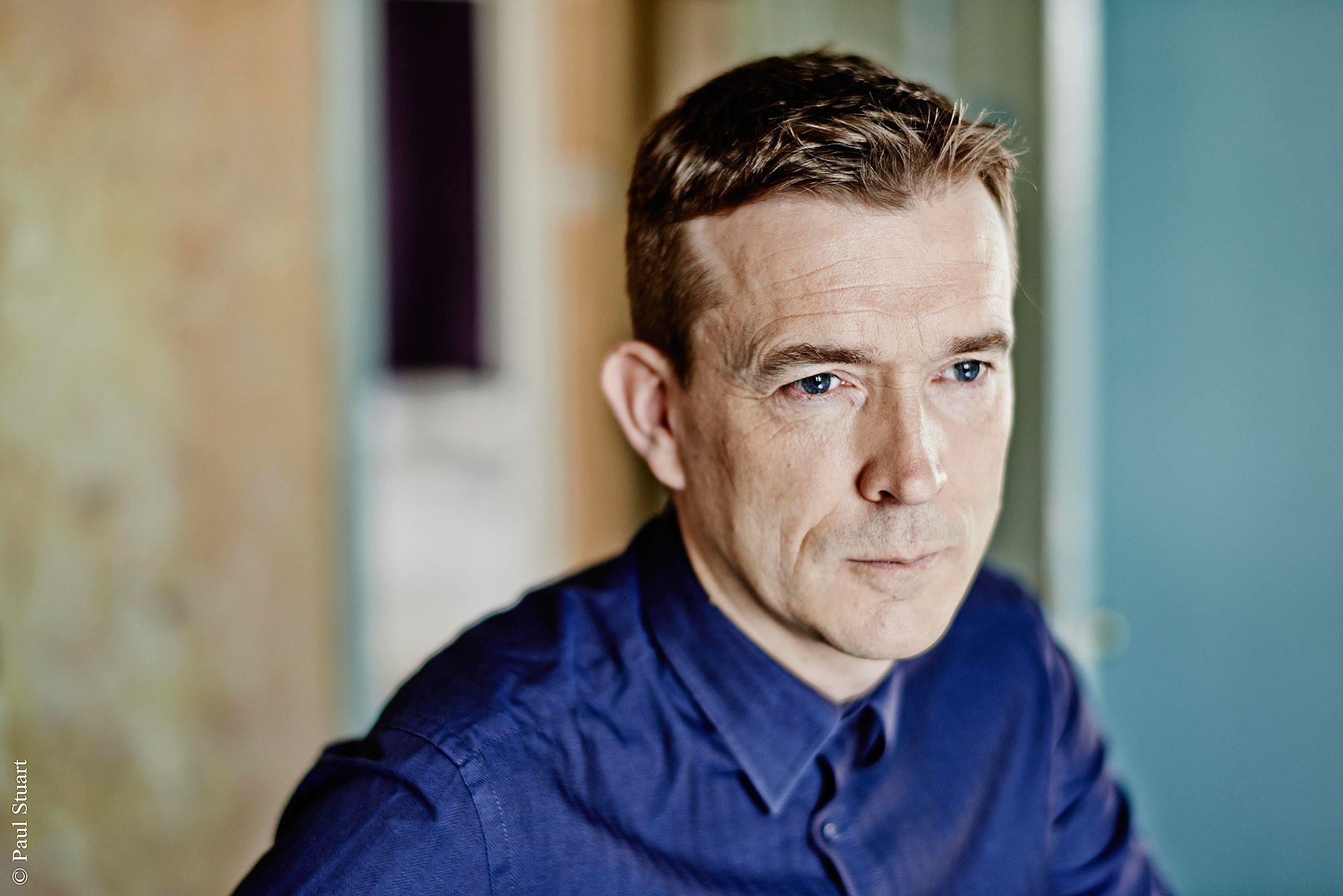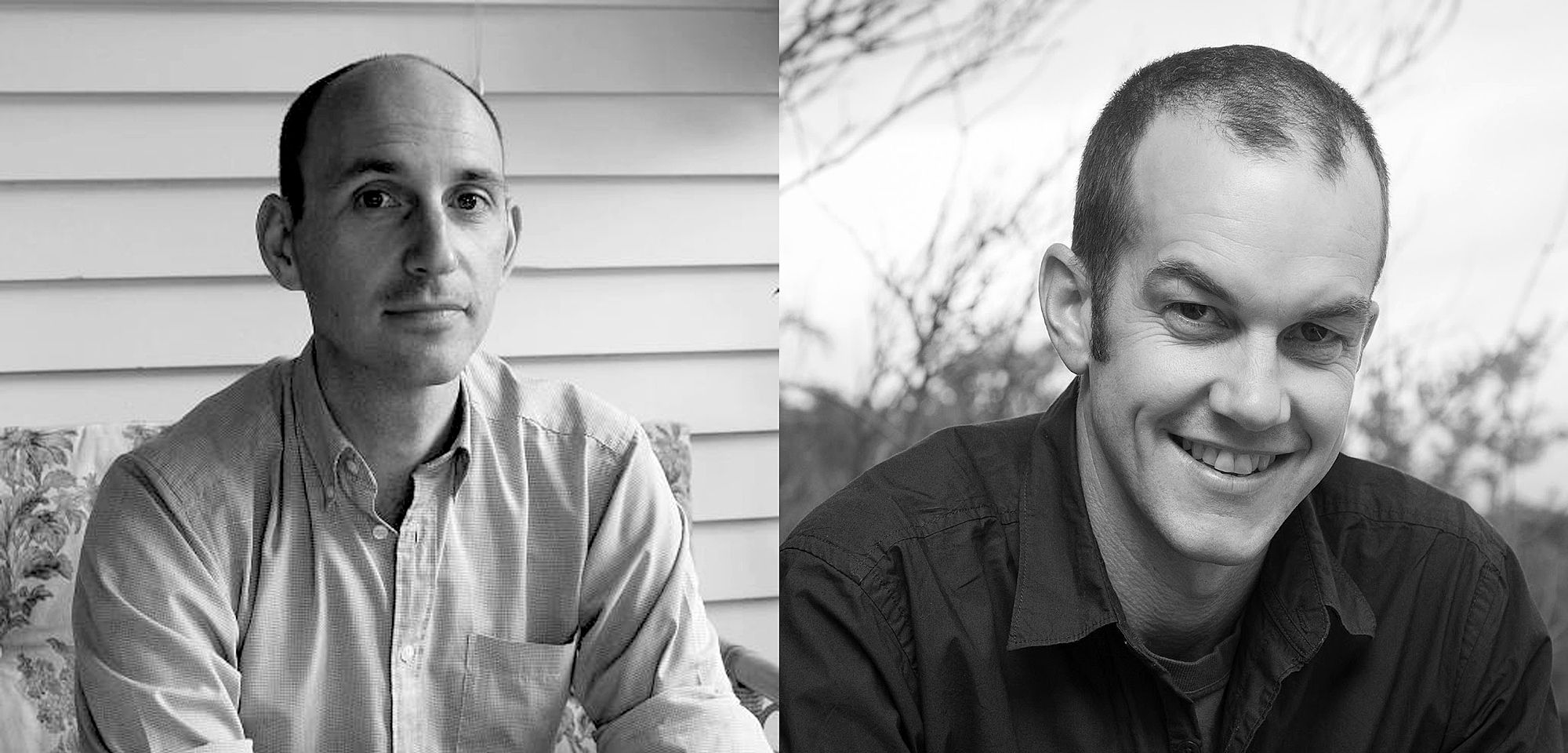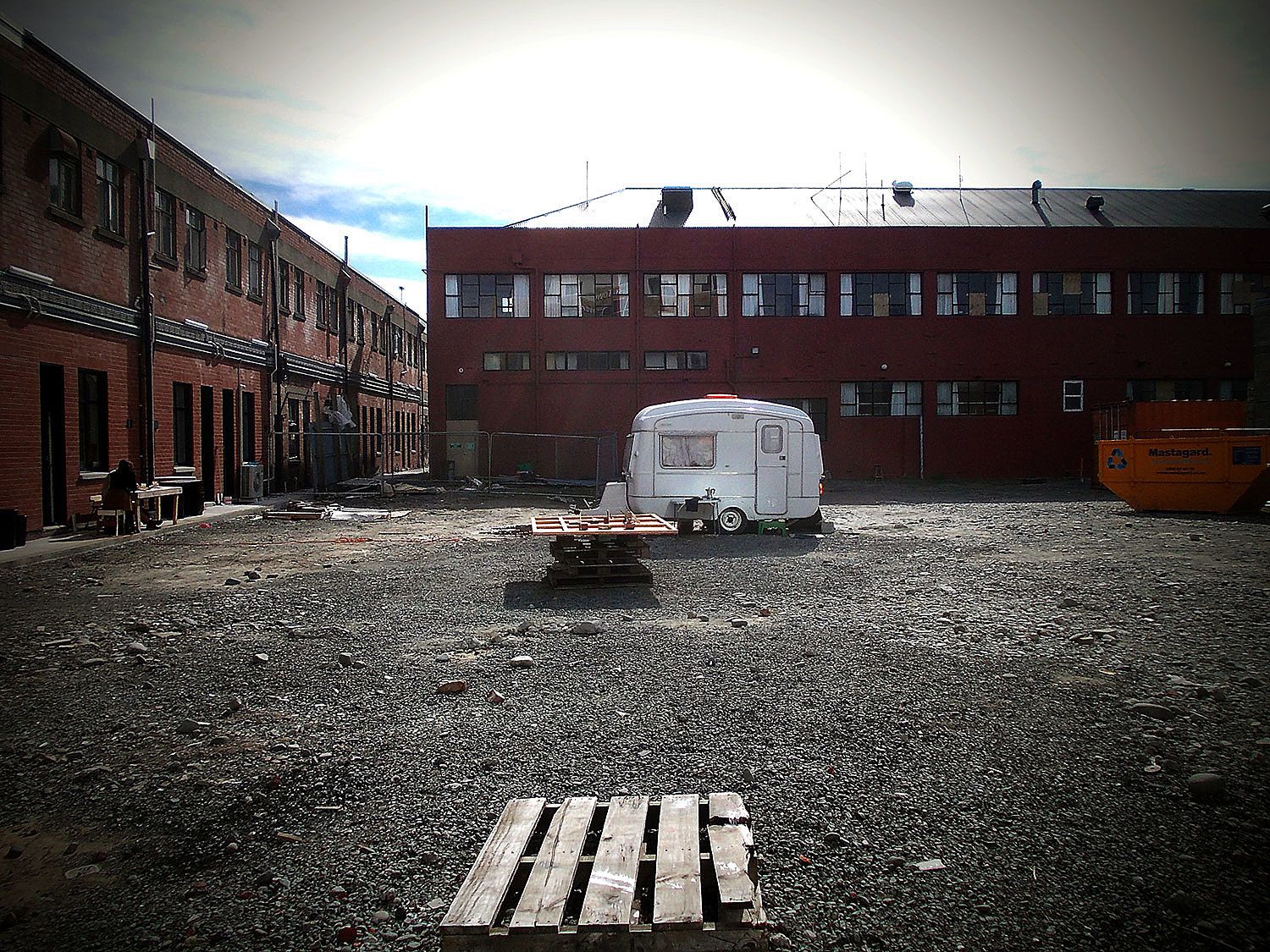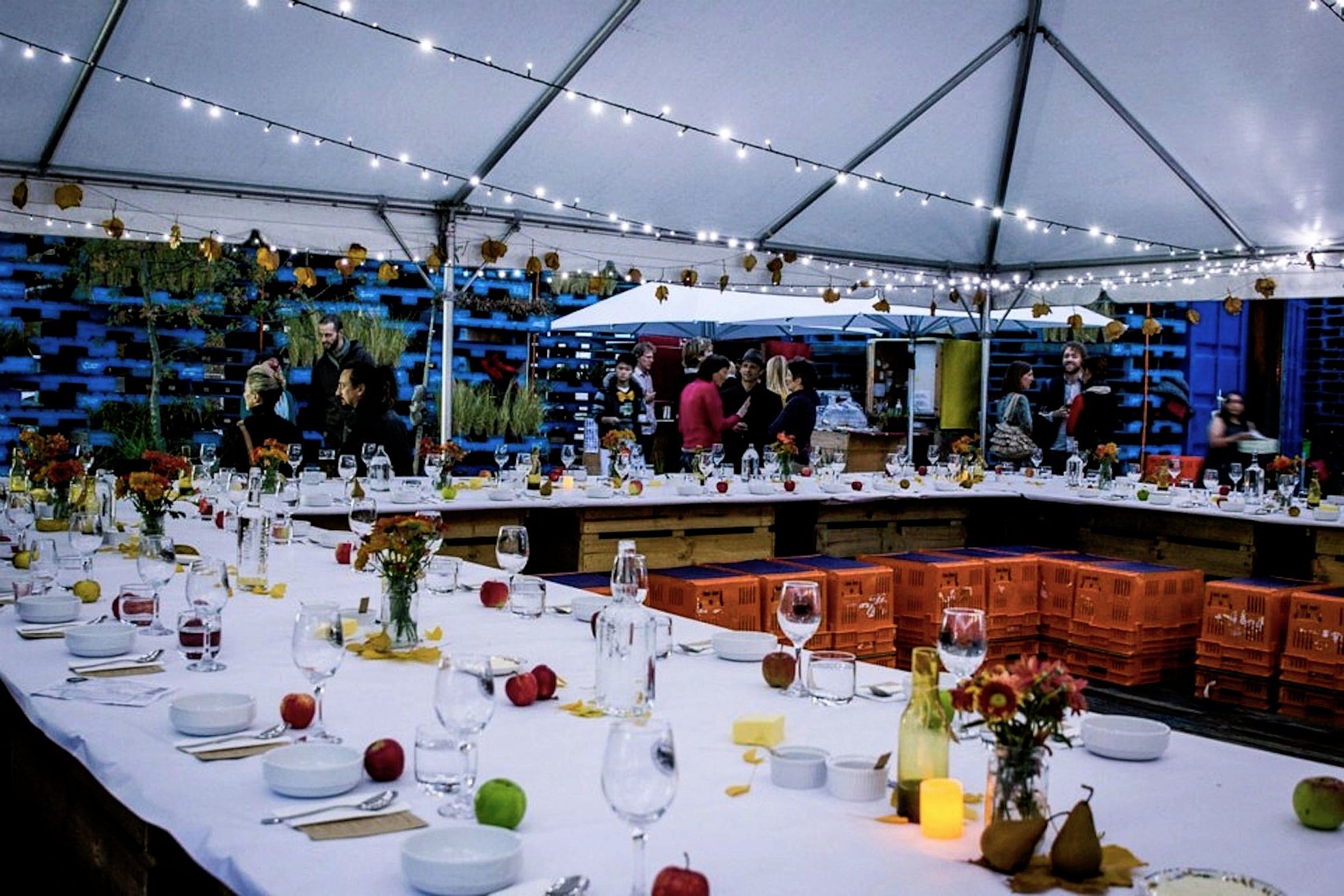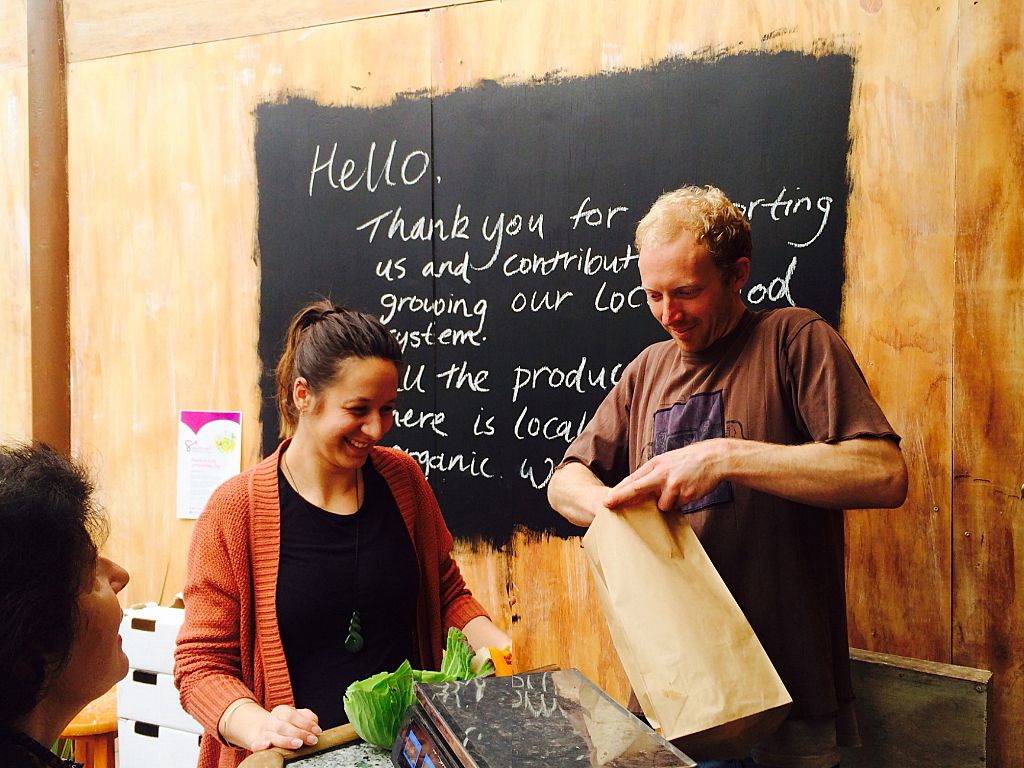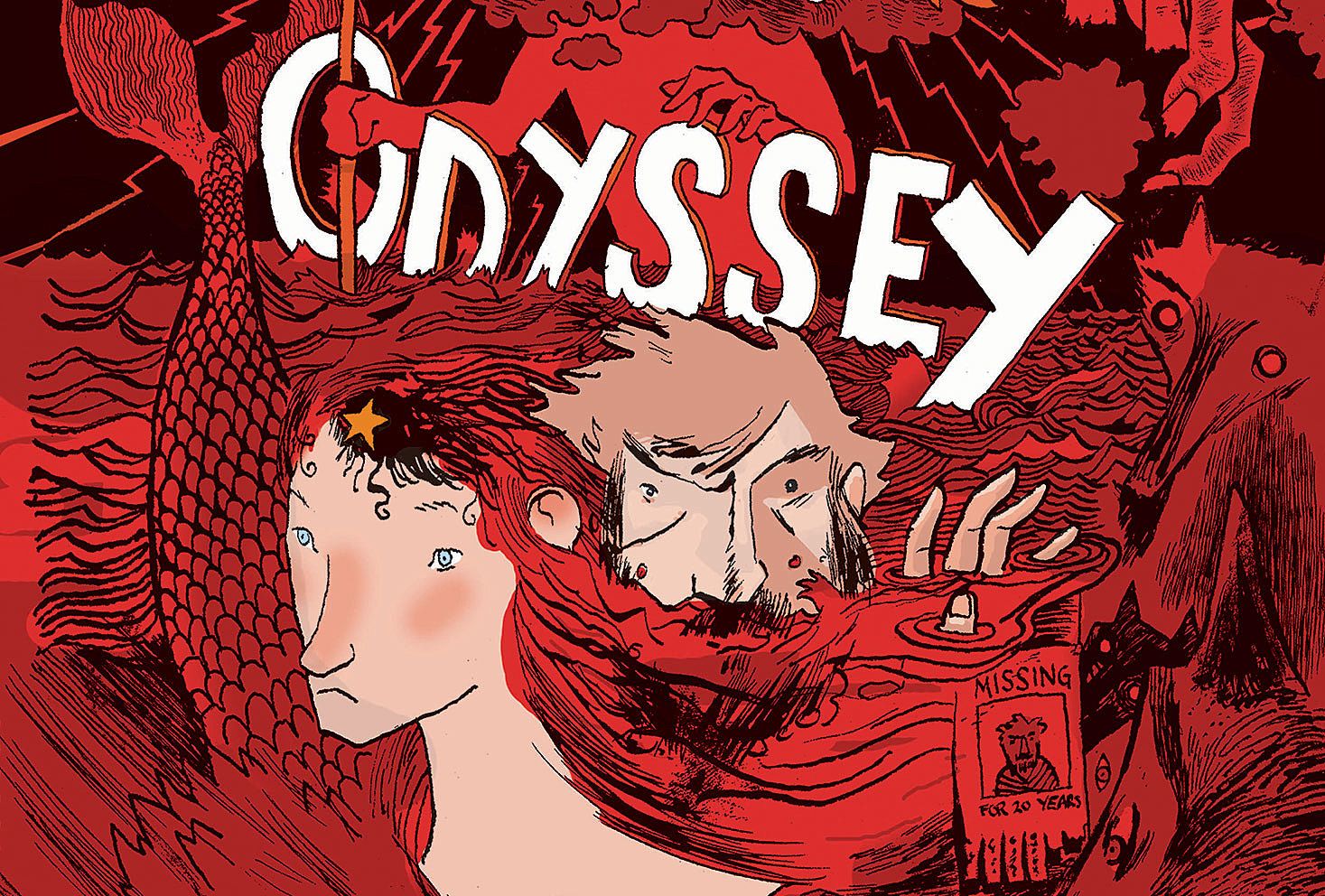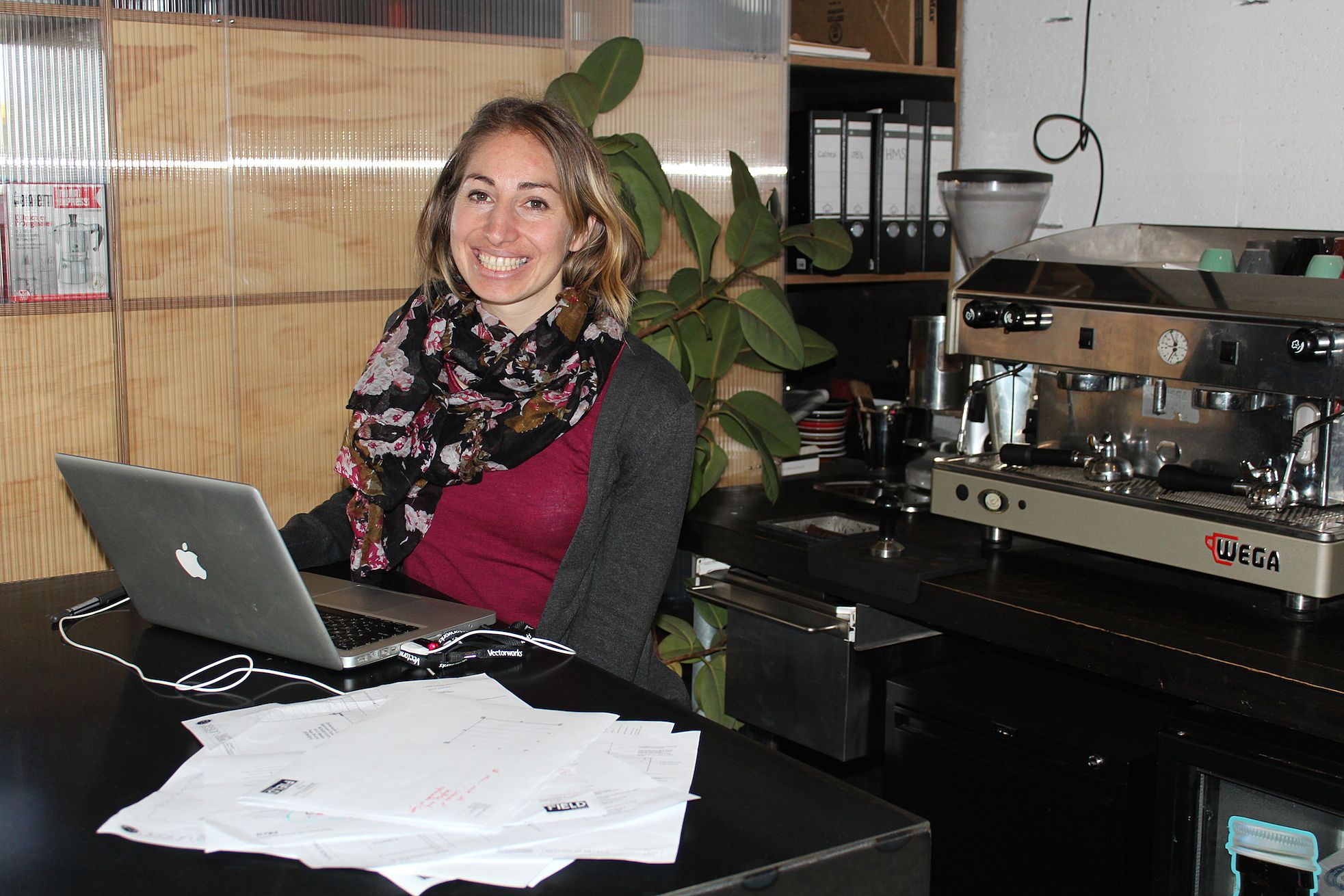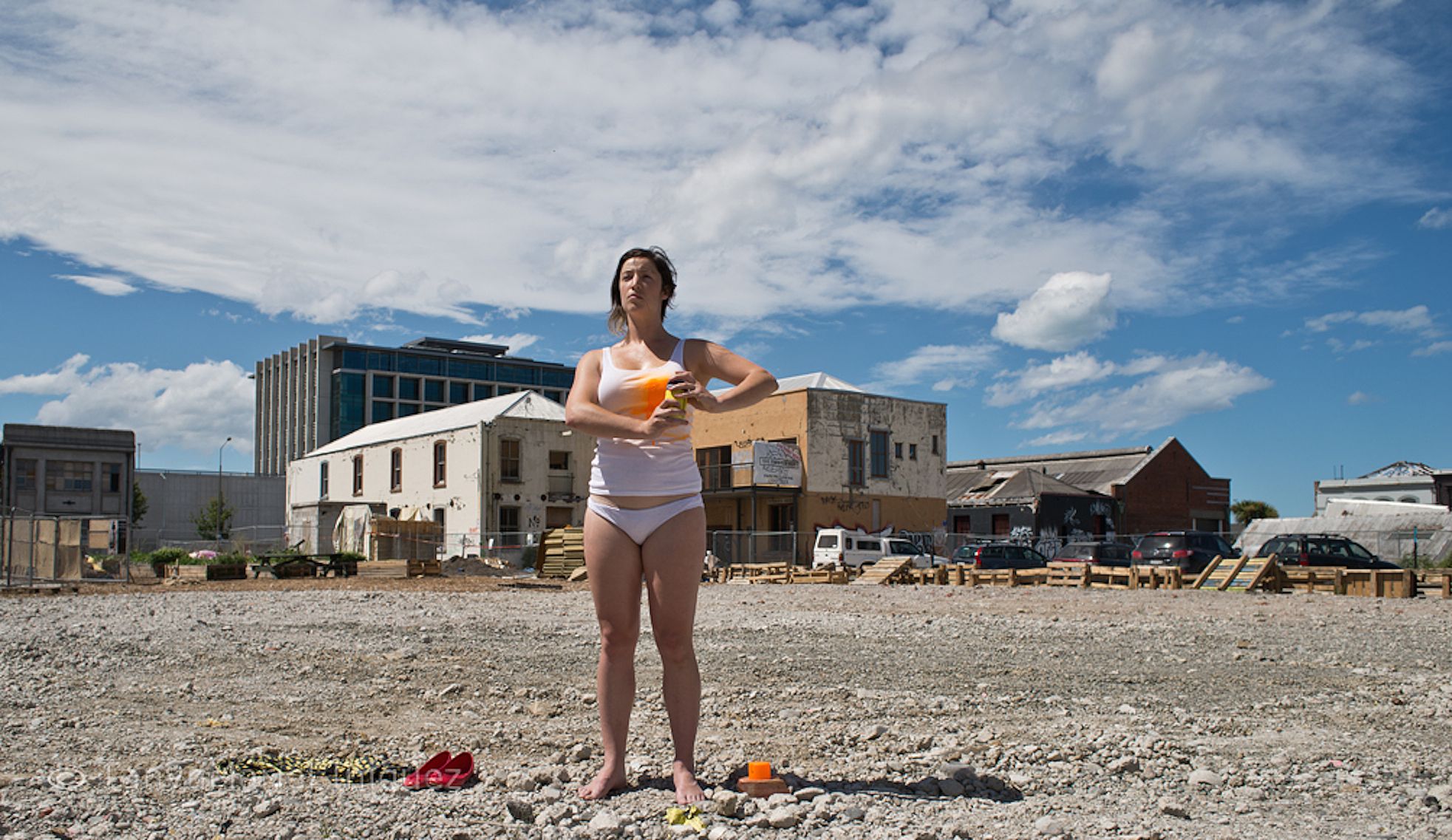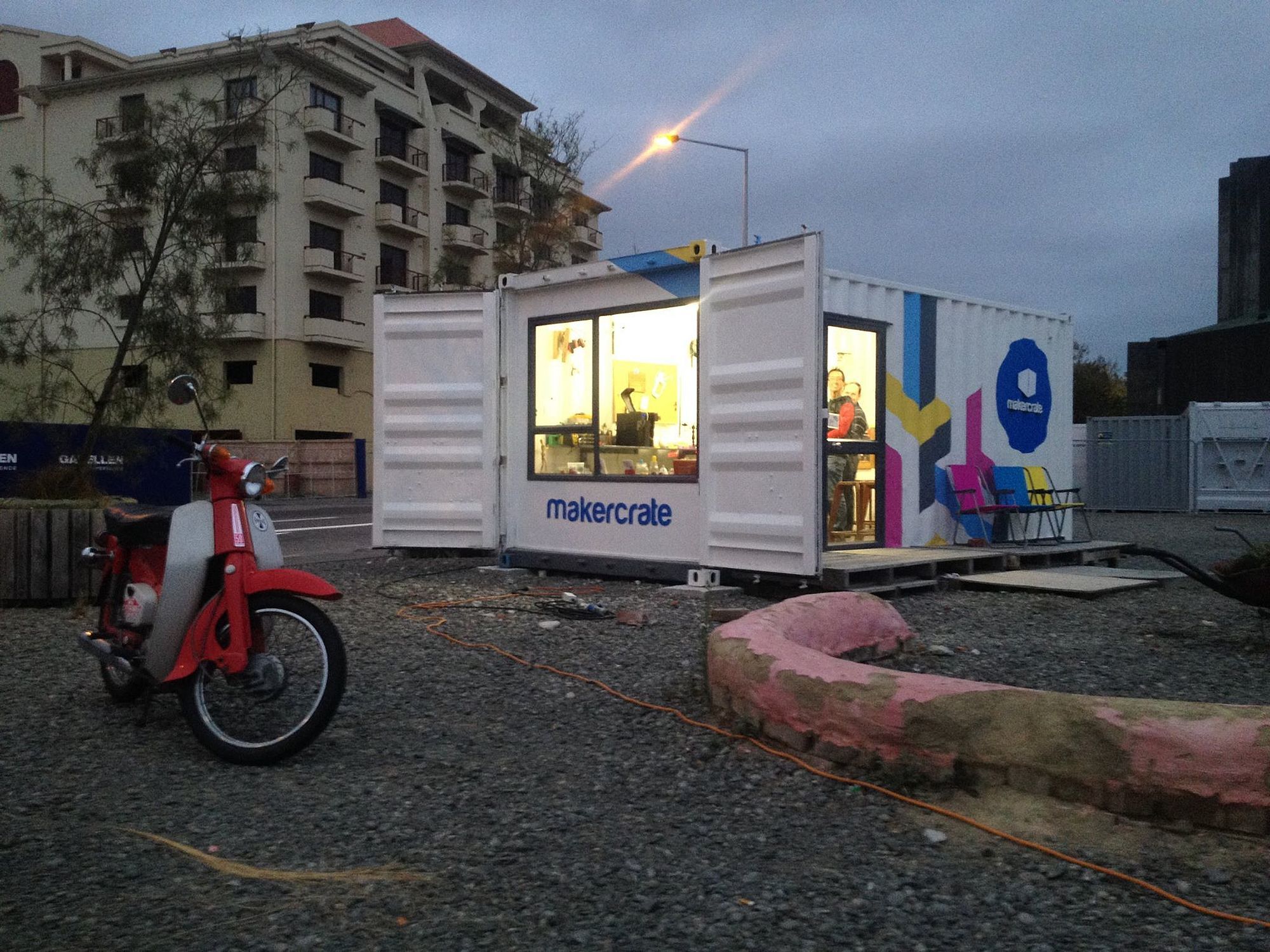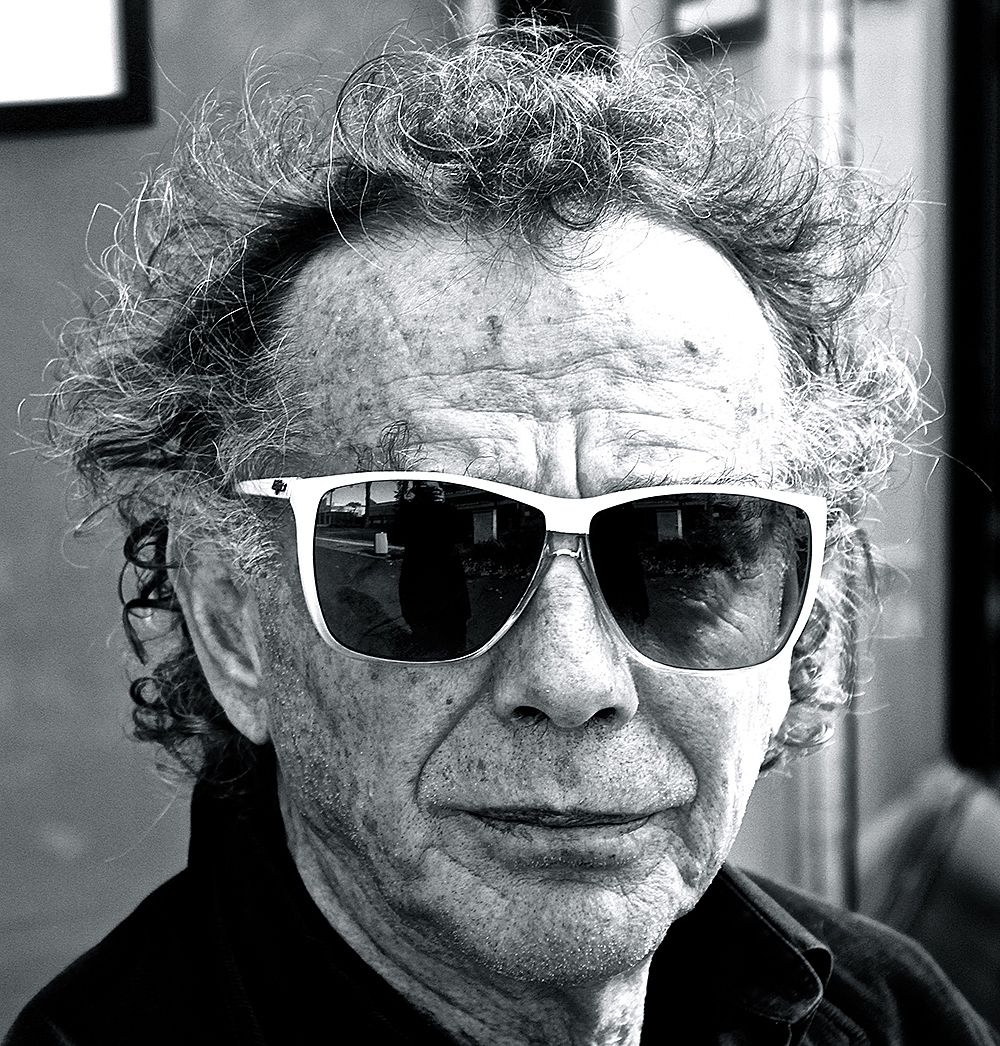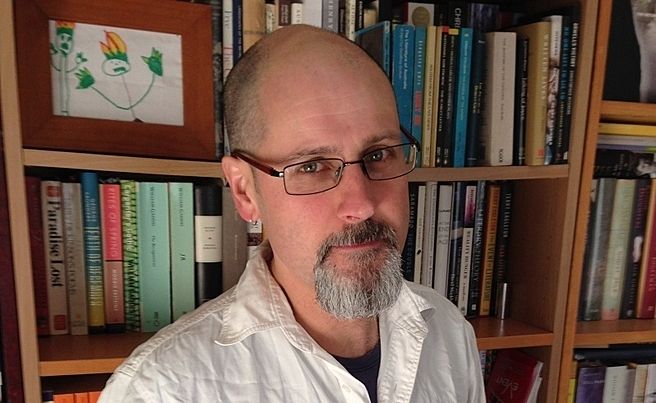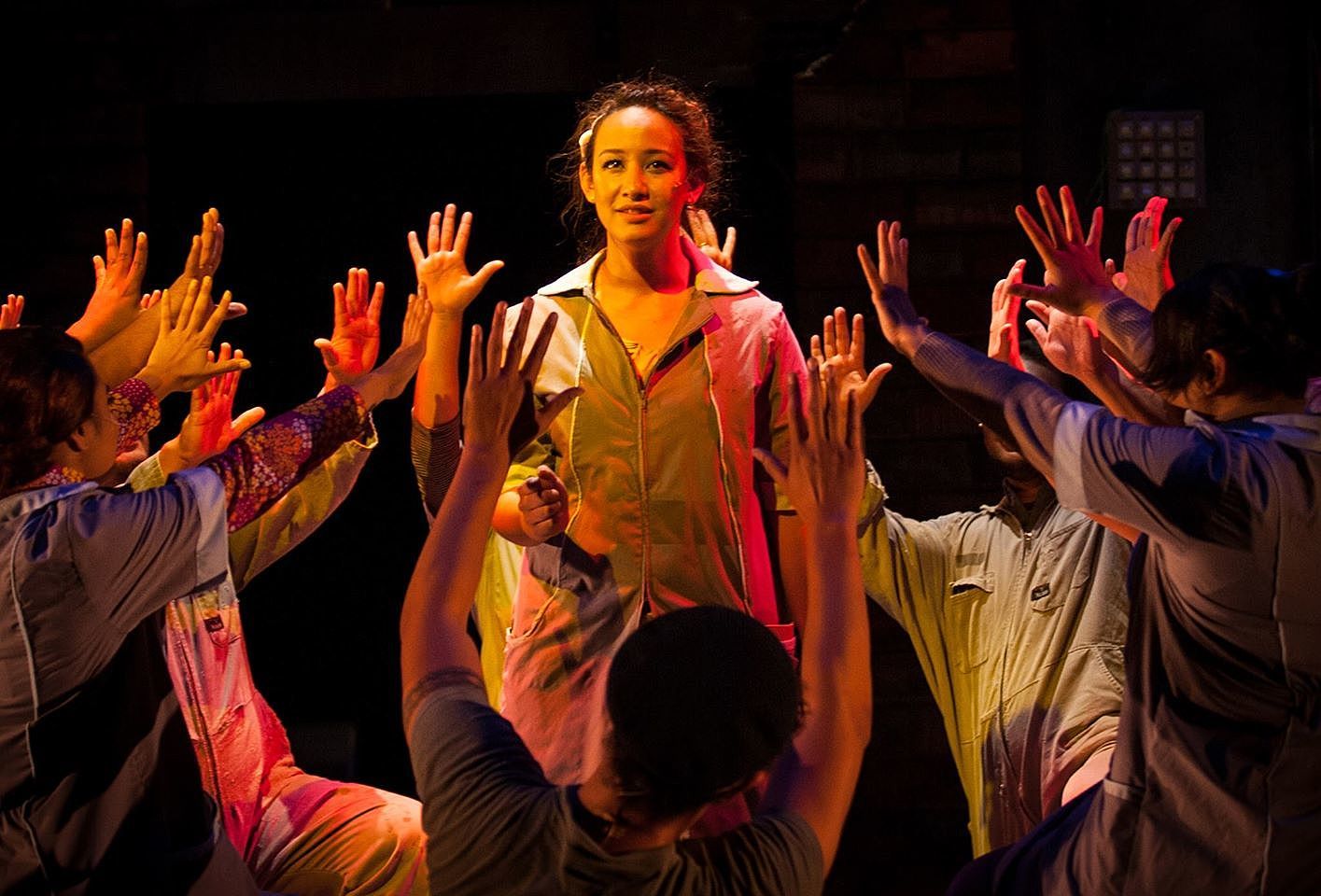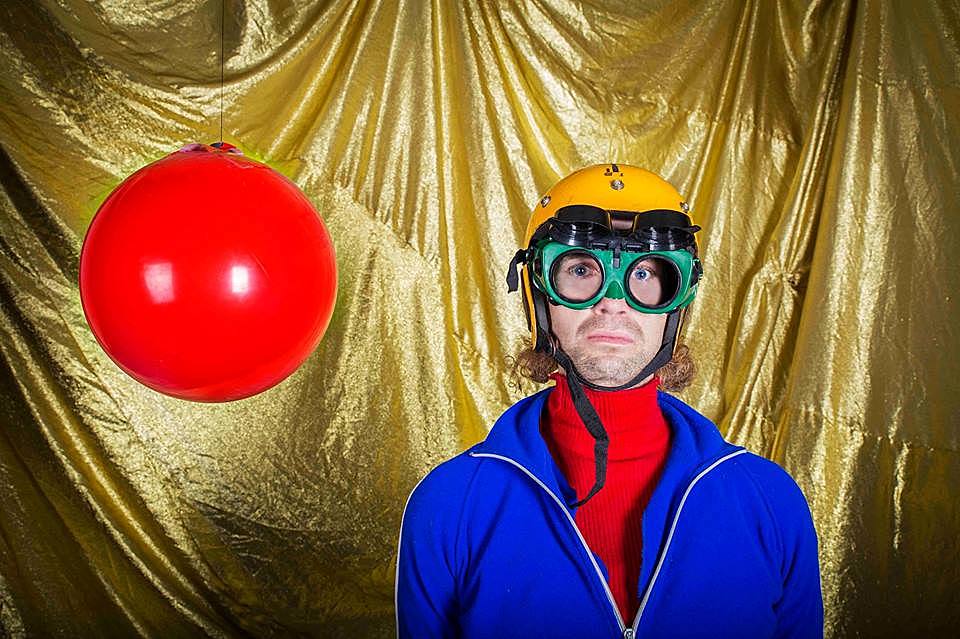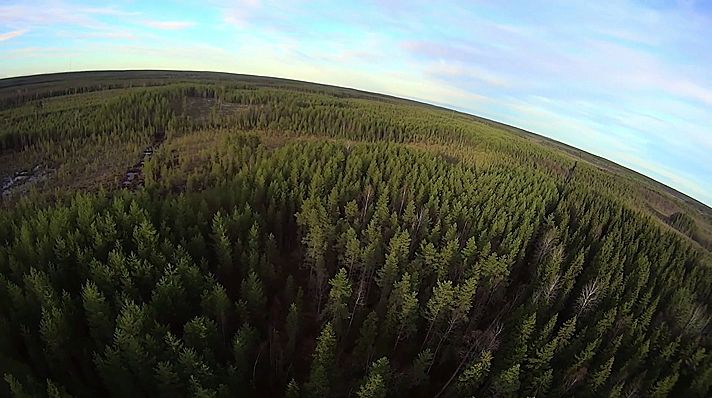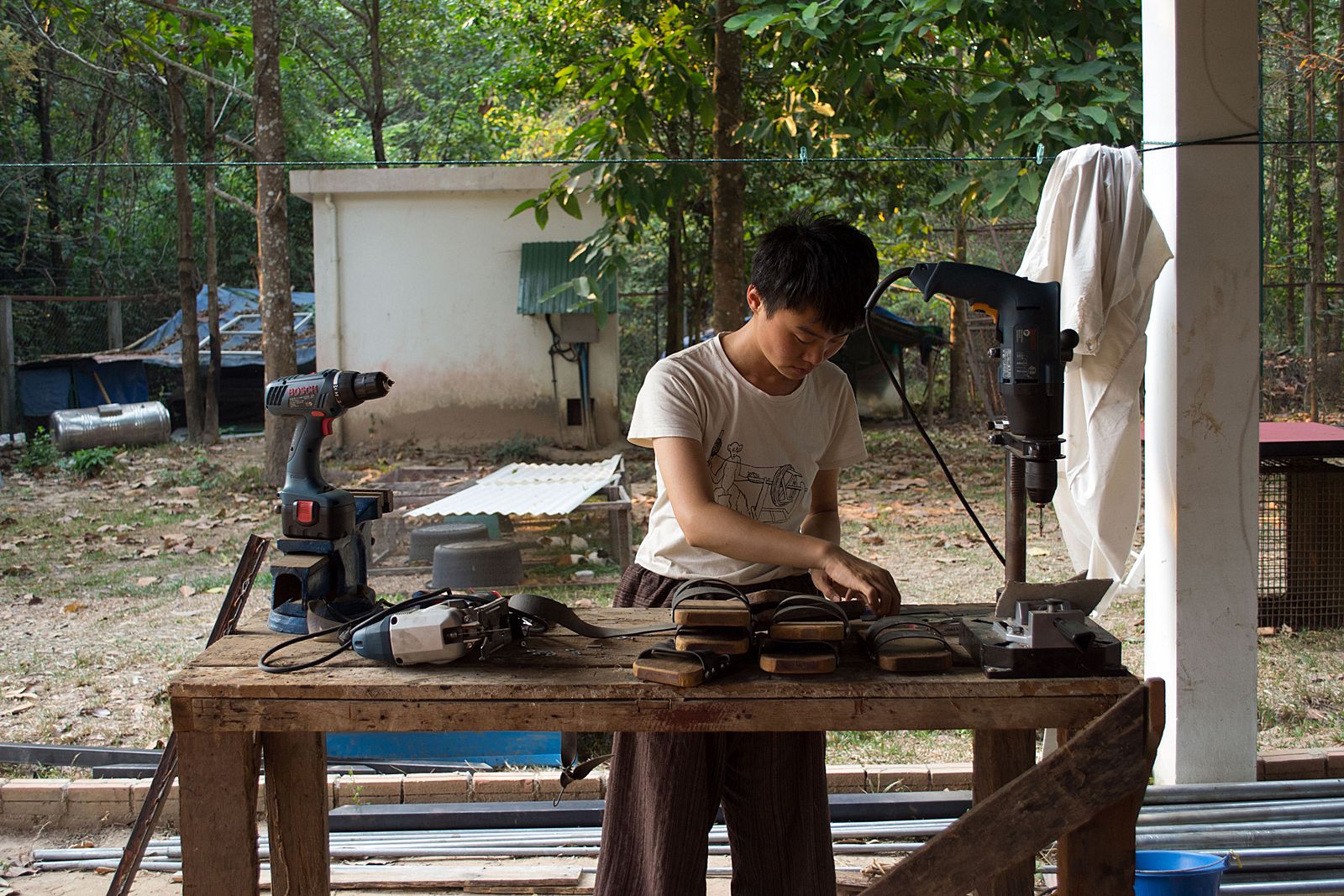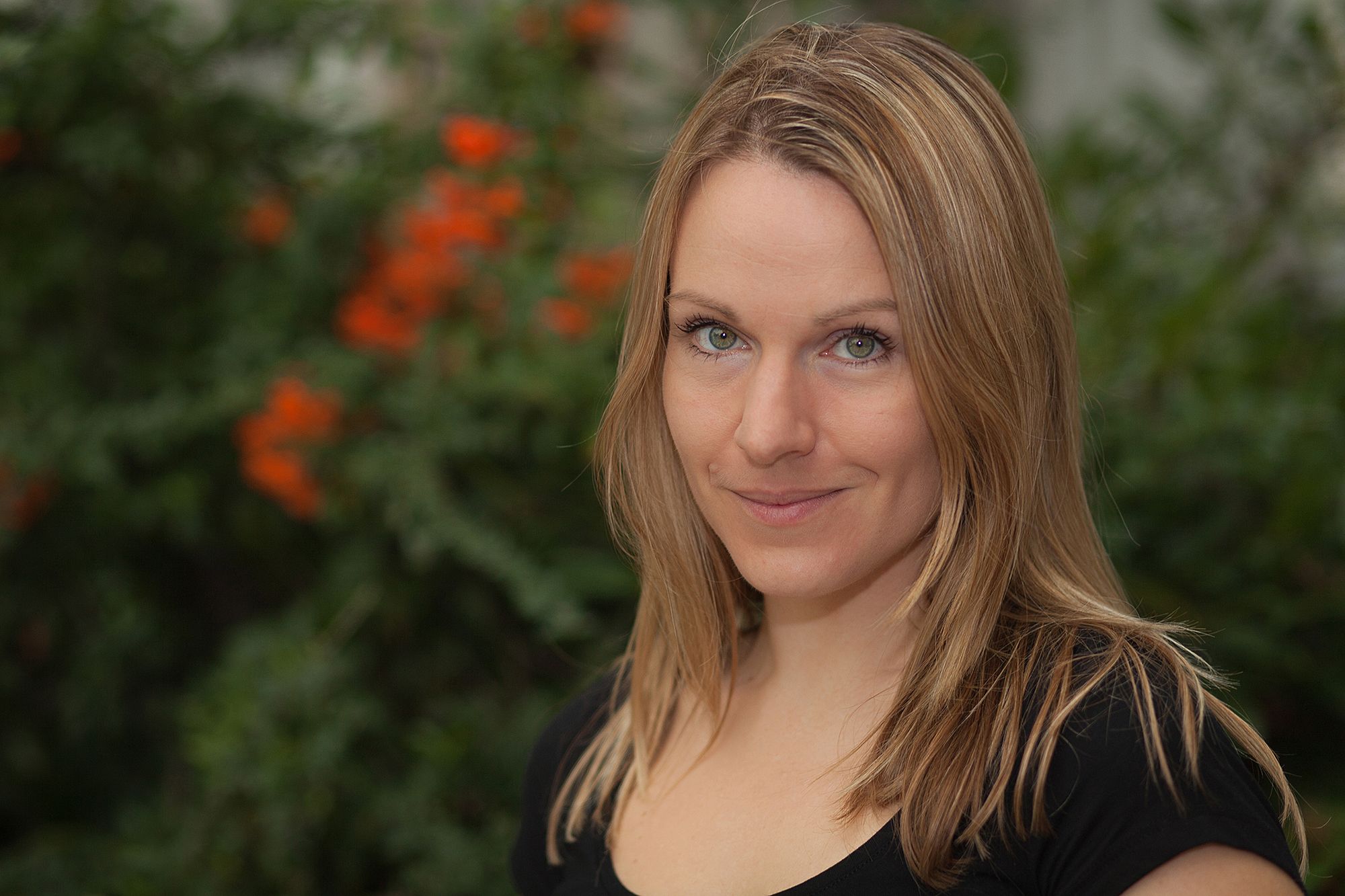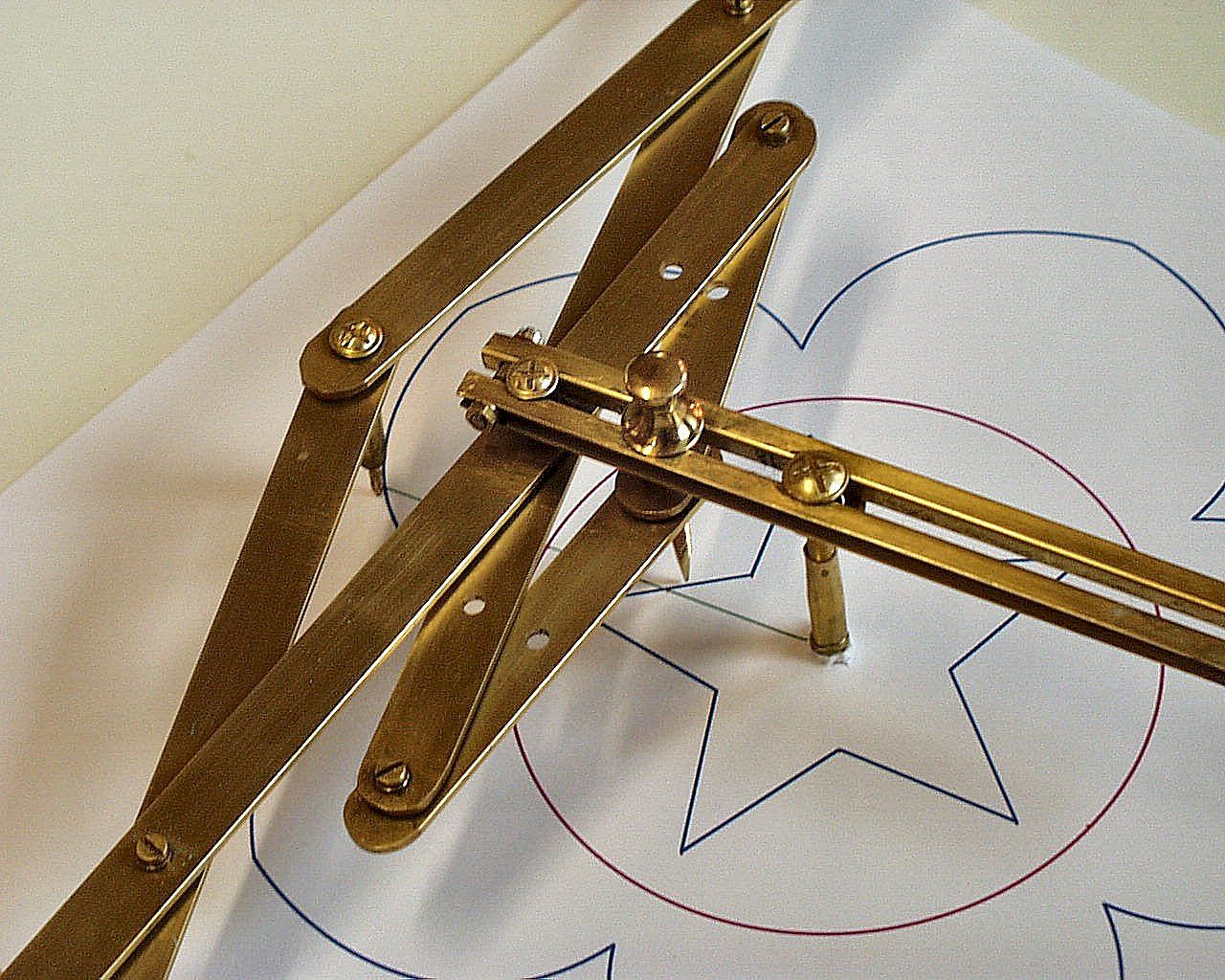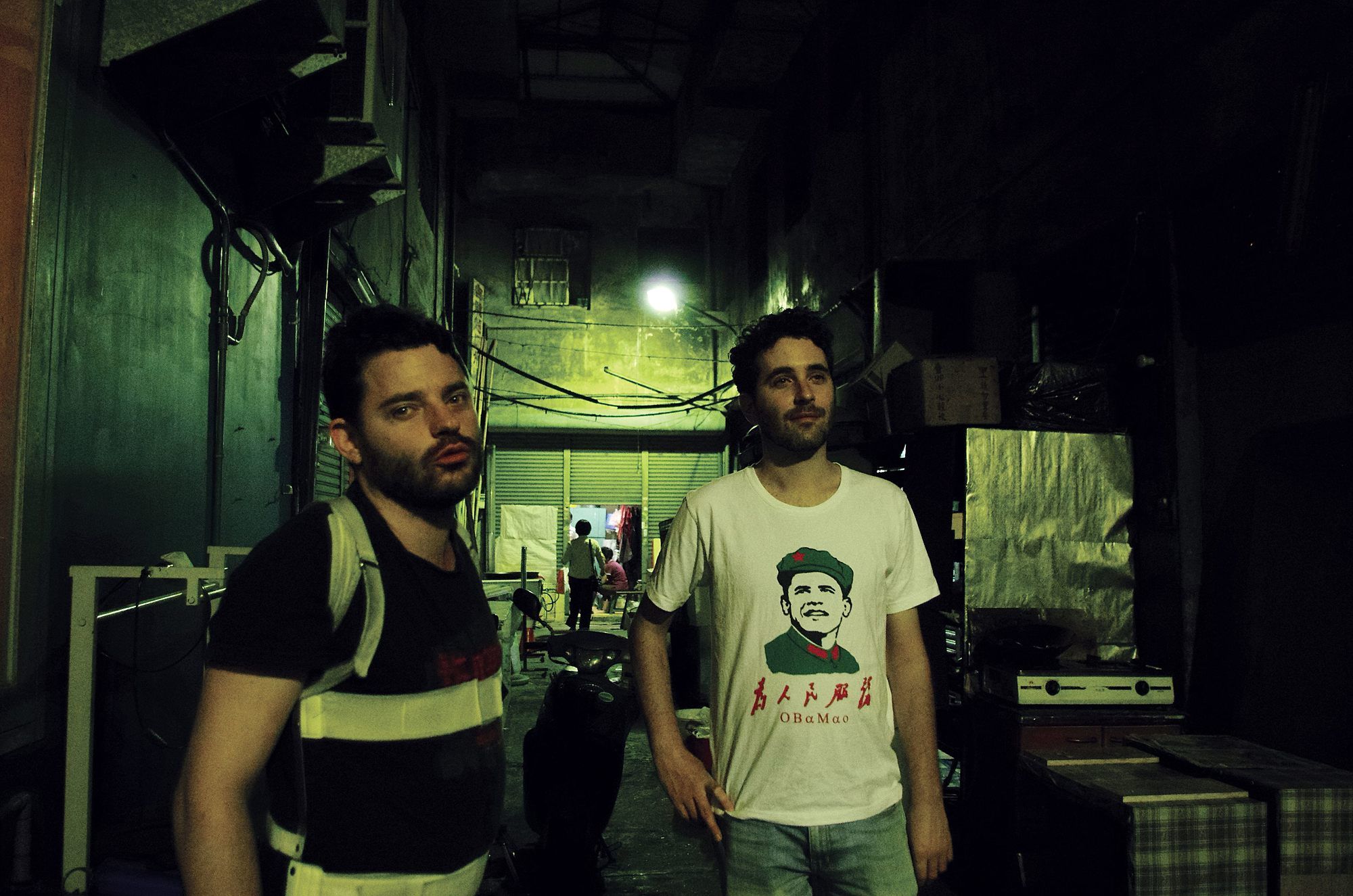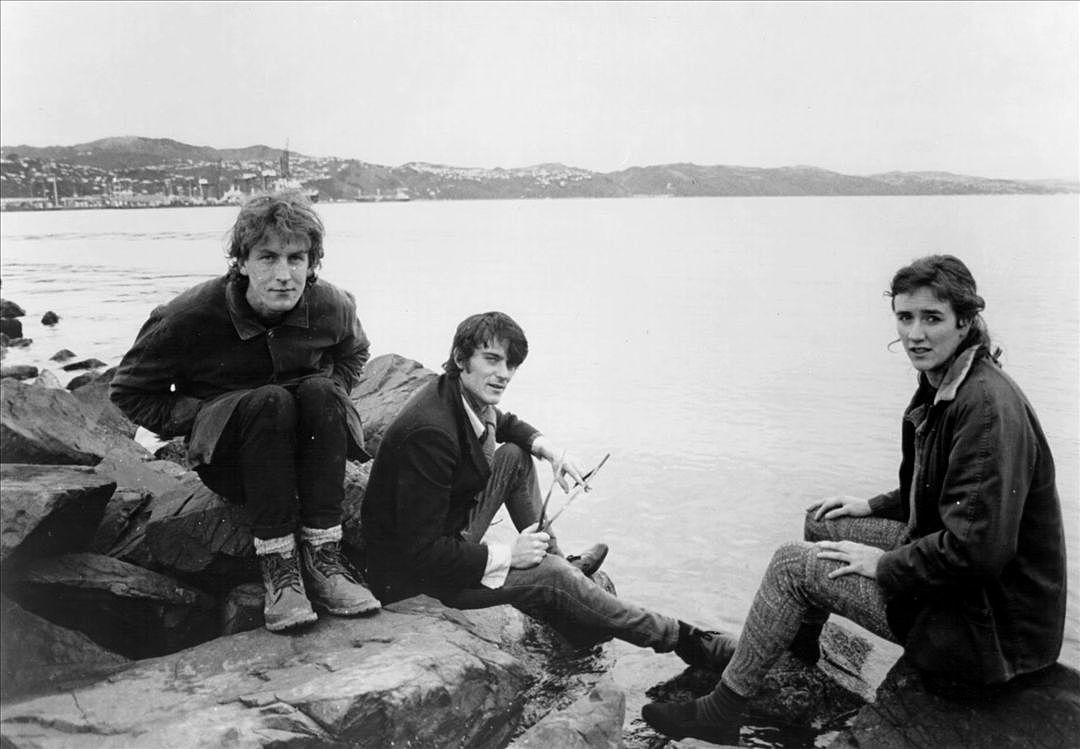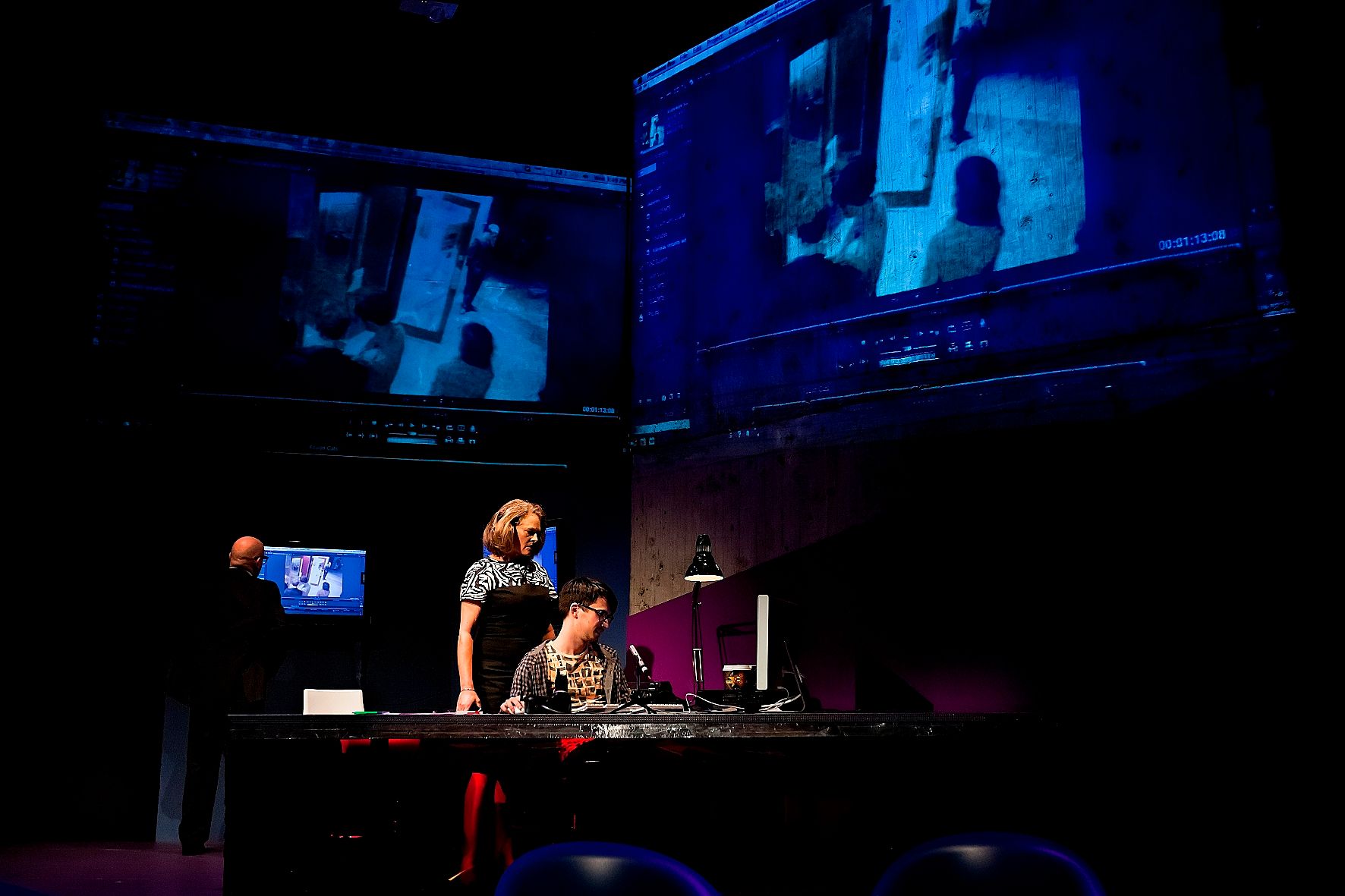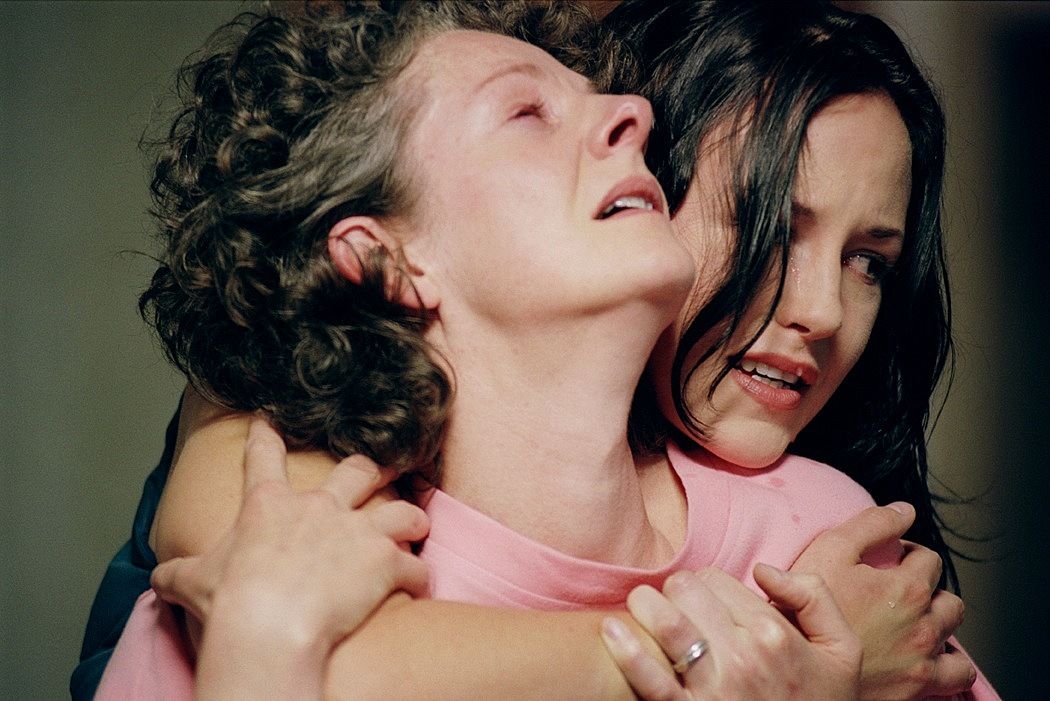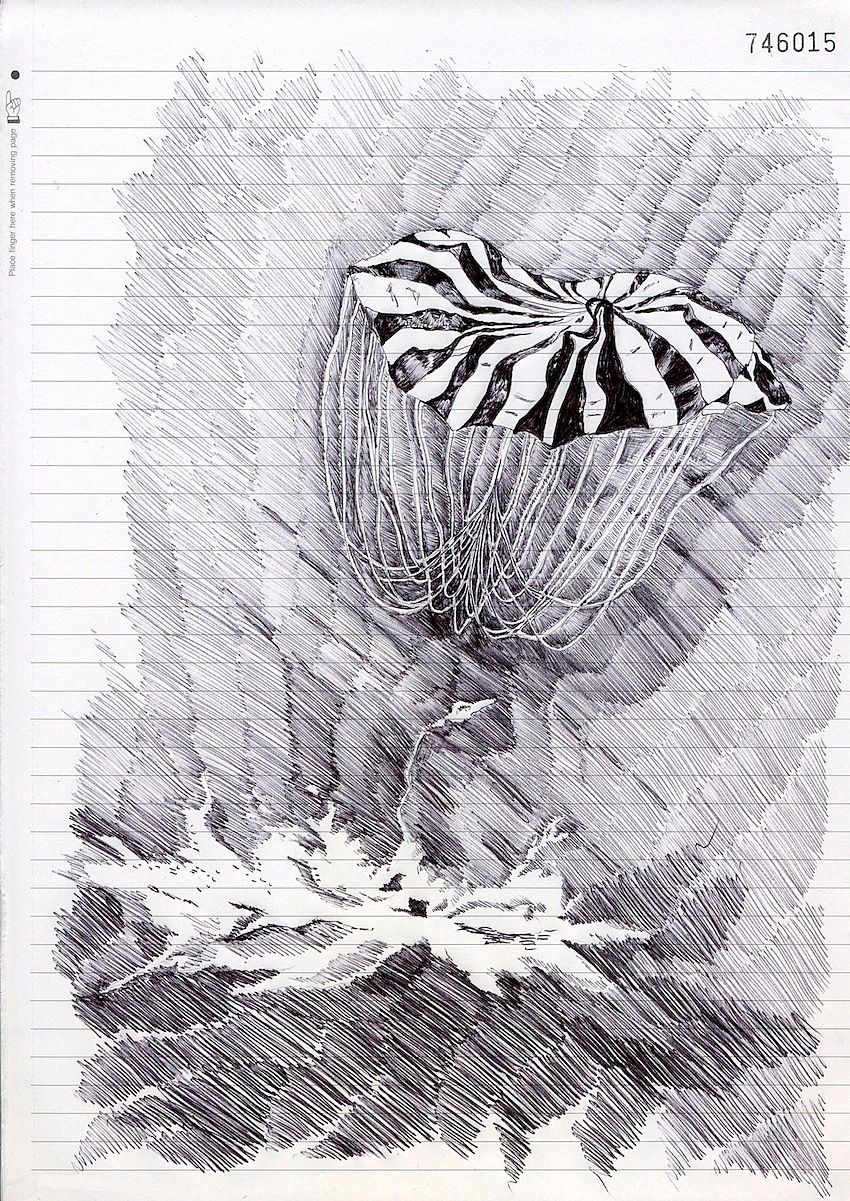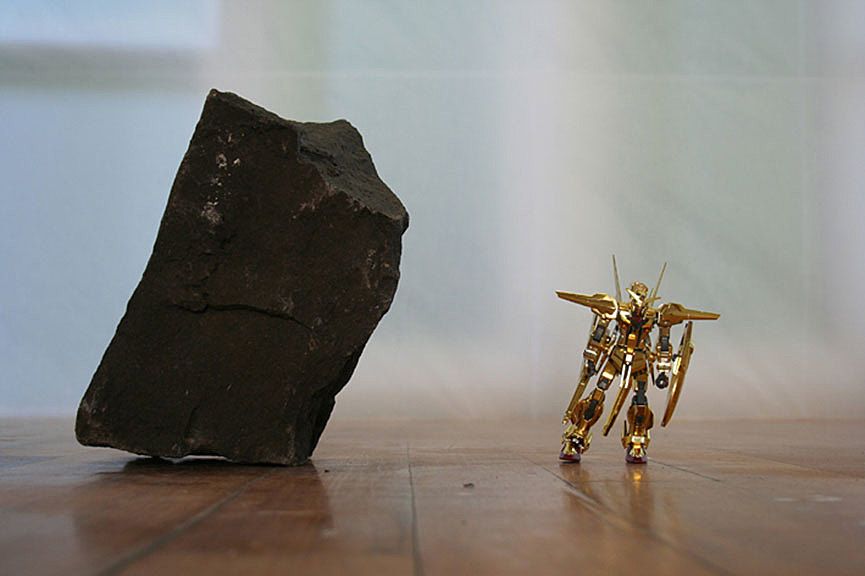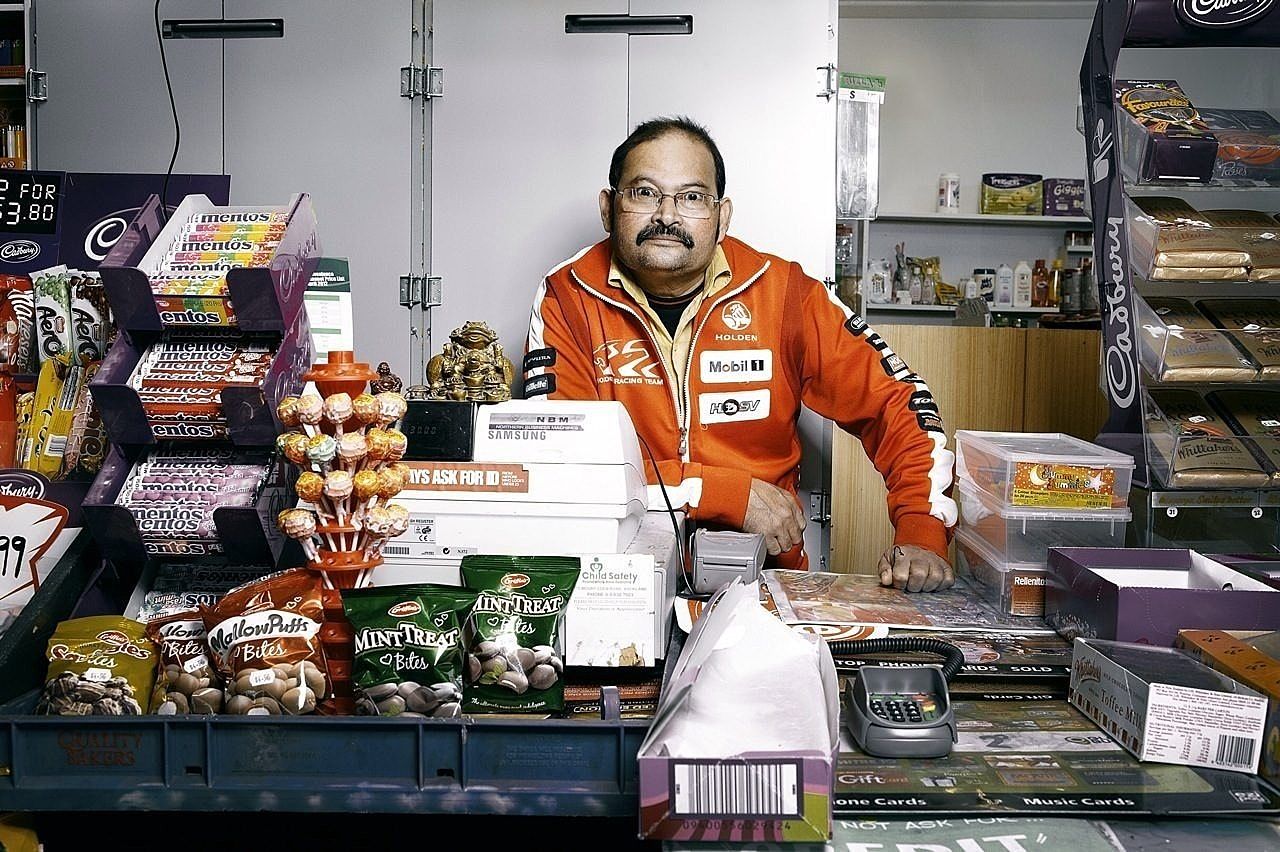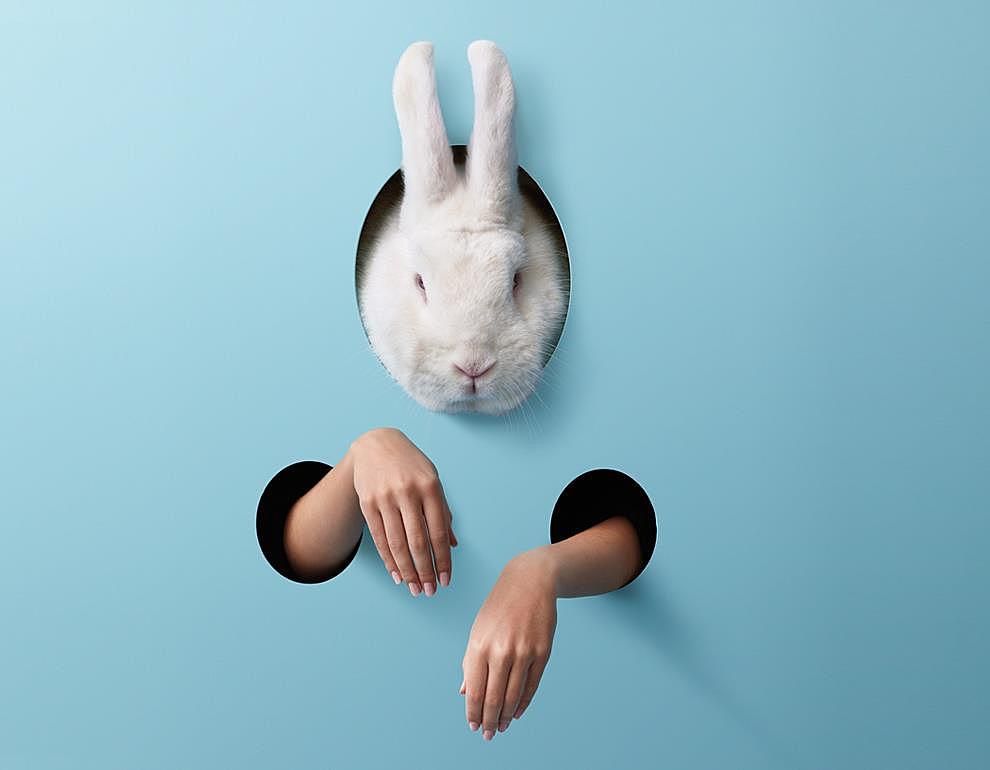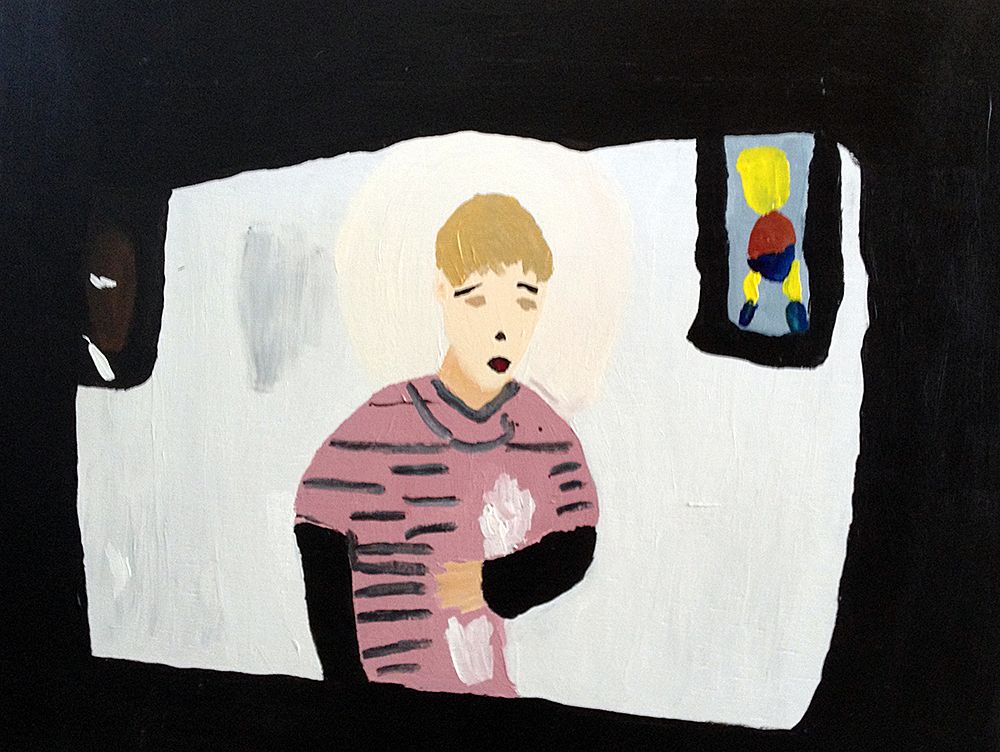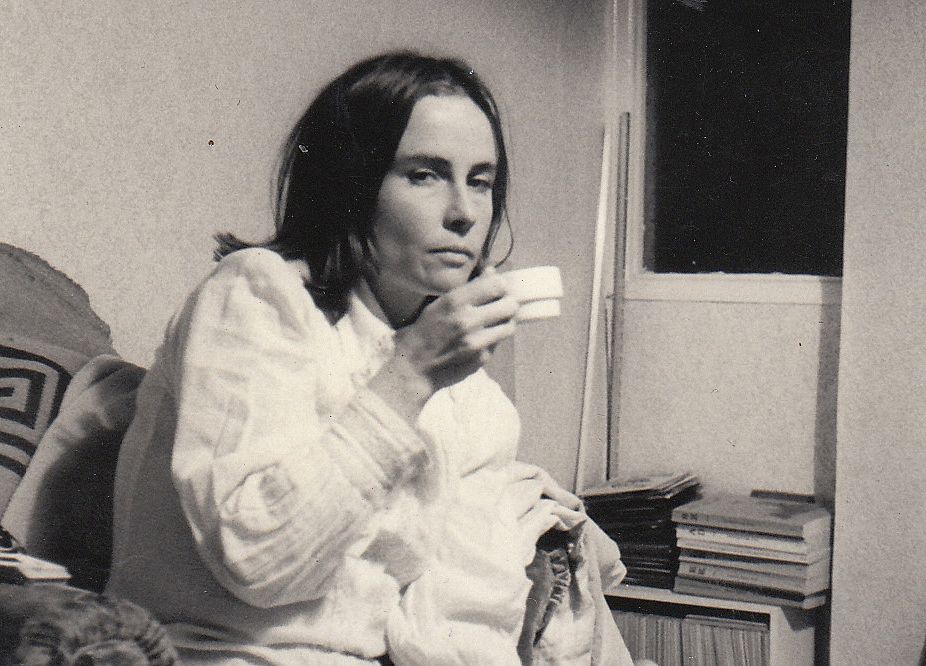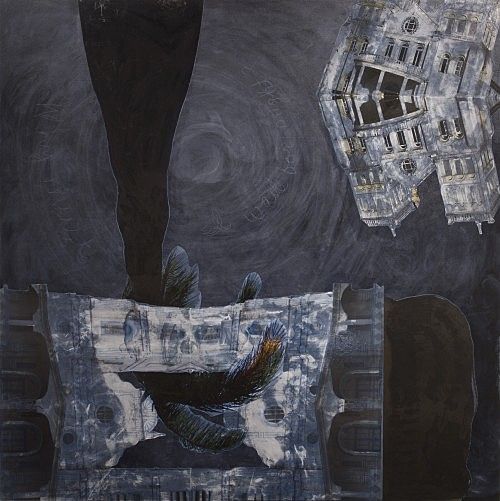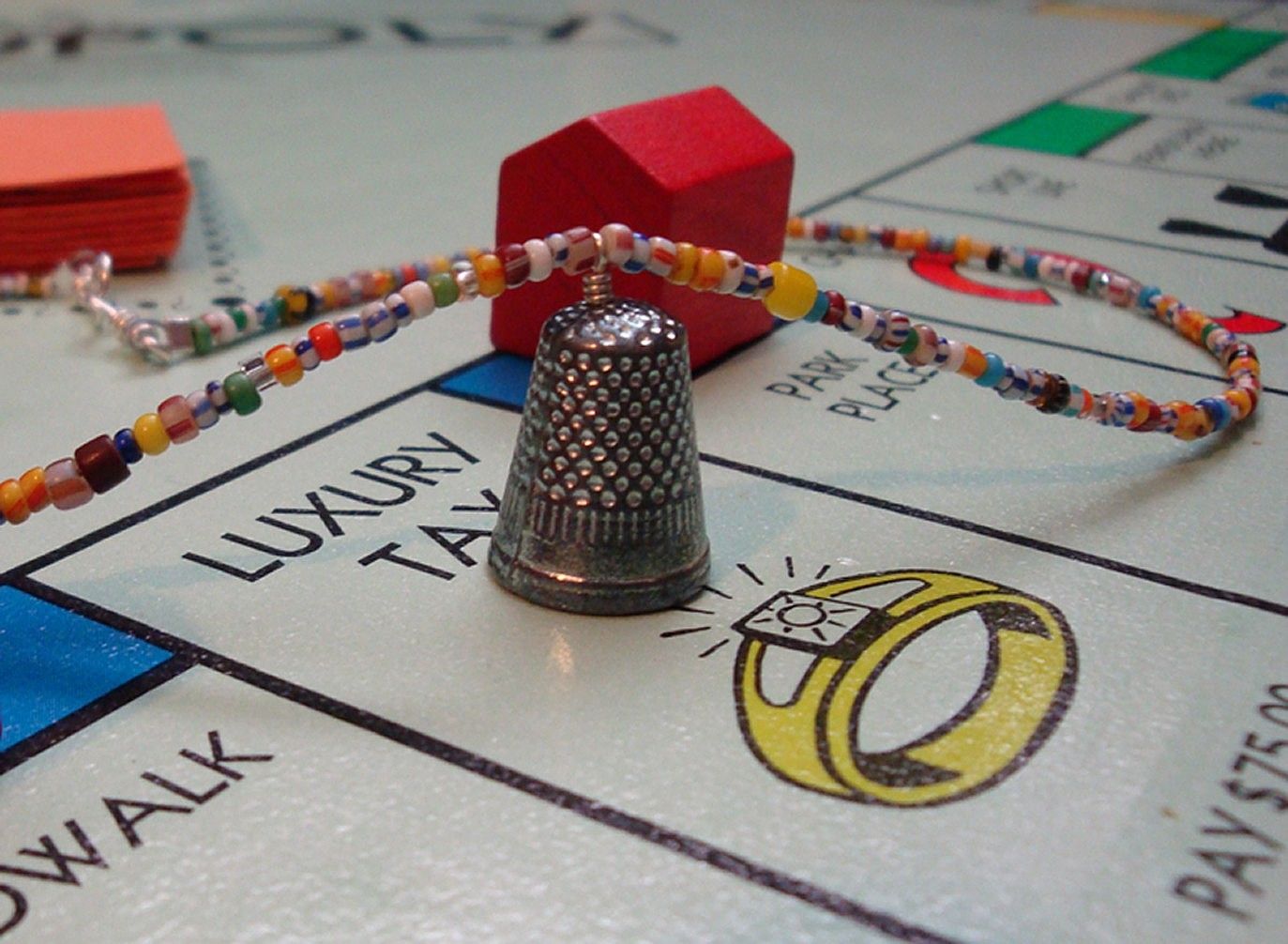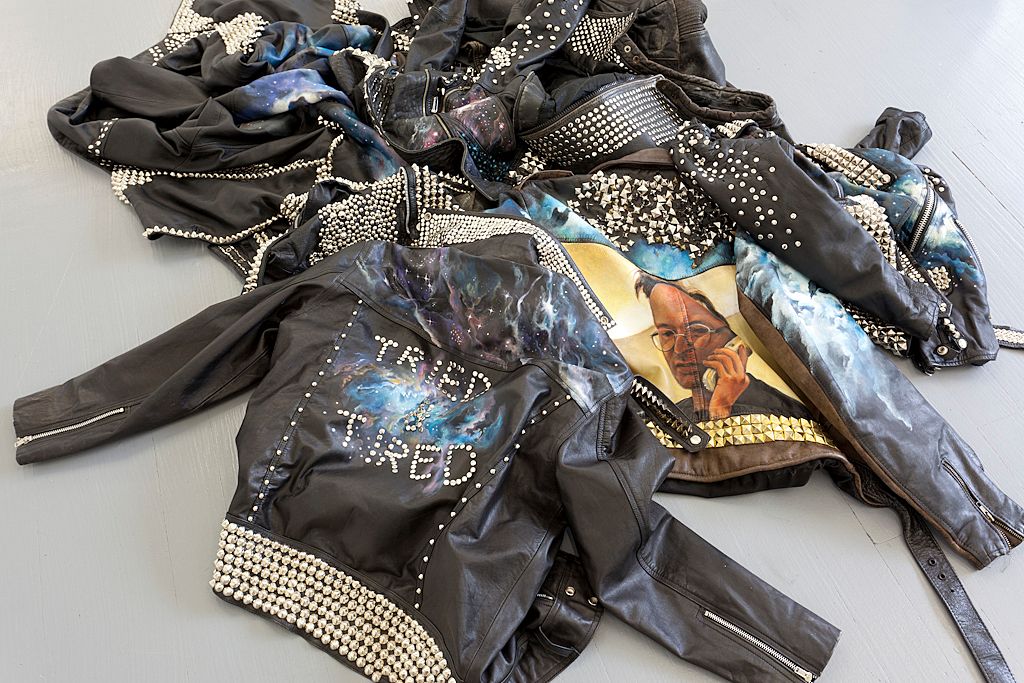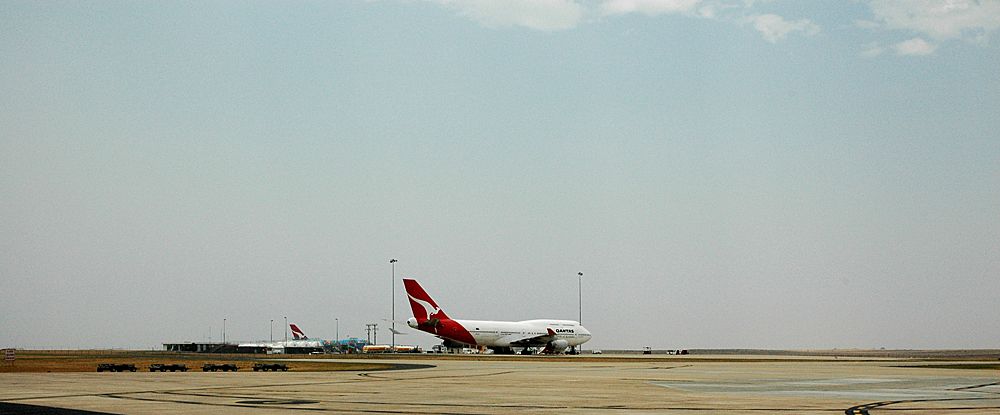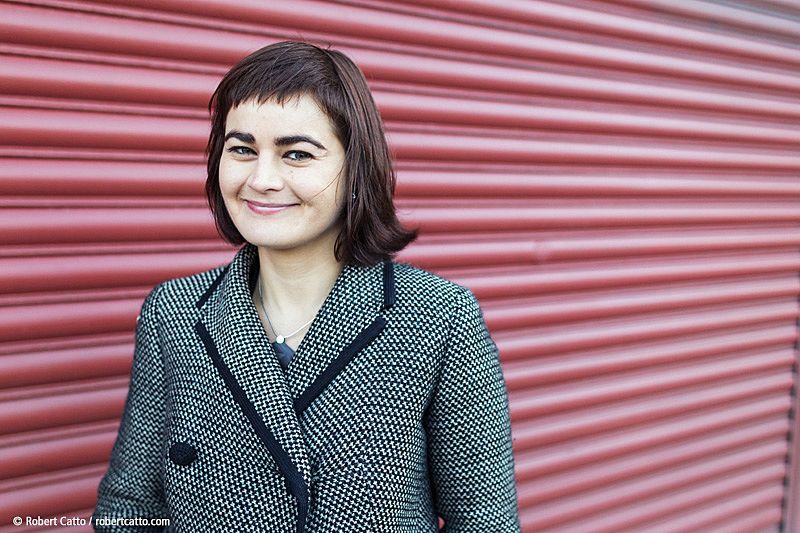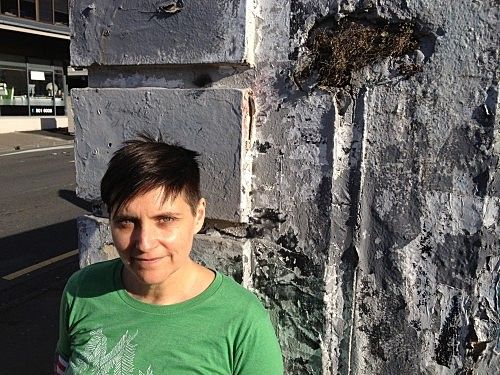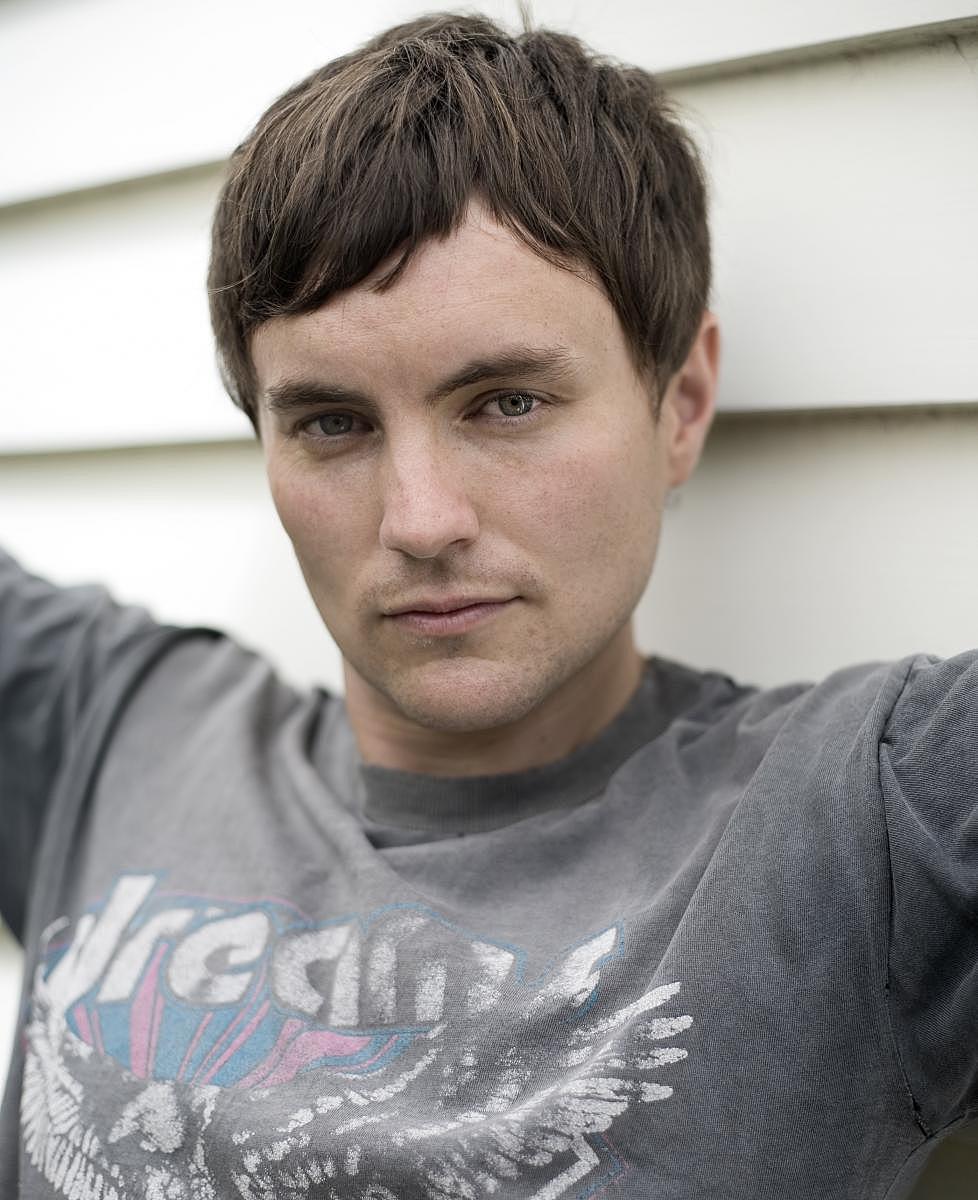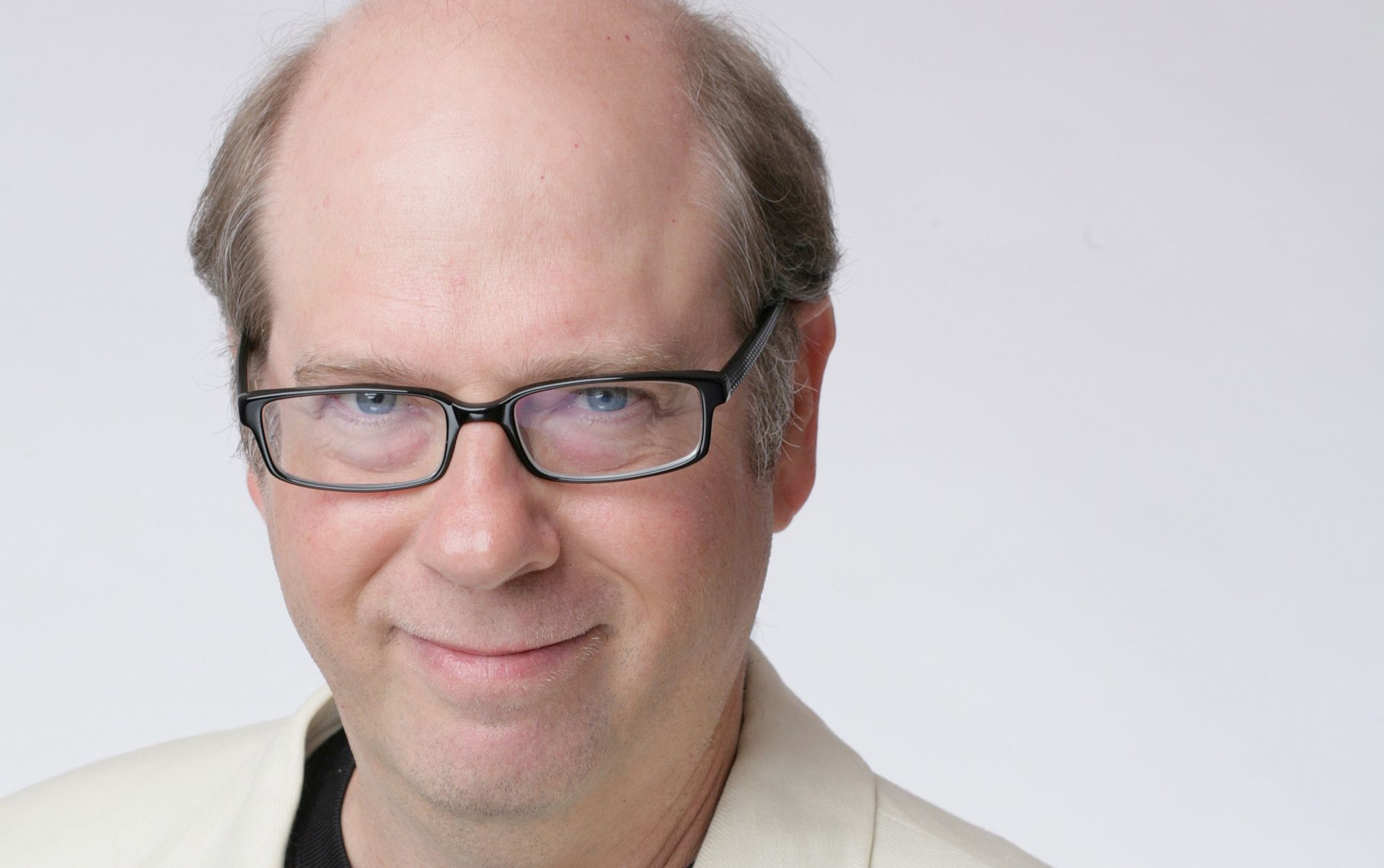Everything in: Profiles
Rosabel Tan talks to Lee Mingwei about forging connections between strangers and the stories behind his works.
Brannavan Gnanalingam talks to Terence Davies, director of Sunset Song and A Quiet Passion, about the struggles and the euphoria of creation.
Currently on show at City Gallery Wellington alongside work by Grayson Perry, Kushana Bush's paintings are delicate, tragicomic, and surreal. Megan Dunn talks to the neatnik painter, who says she gets her kicks from art history and babysitting.
Hermione Johnson talks to Susan Alcorn ahead of her NZ tour
Georgina Langdon-Pole on Joseph Herscher's elaborate Rube Goldberg tributes
Joan Fleming talks to Dr Hannah August about her new text.
The first in a new longform interview series, Josephine Stewart-Tewhiu talks to Jennifer Ludlam about running away, showing off, and not wanting to play a foil.
India Essuah chats to Briar March about her new documentary, A Place to Call Home
We chat to New Zealand artist Henrietta Harris about The Hum, murder mysteries, and how she makes a living.
Francis Libeau on the Billy Apple retrospective currently on at Auckland Art Gallery.
We chat to David Mitchell about time, death, and creating worlds with no limits
John Summers speaks to his editor, Lawrence Patchett, about their relationship and his new book, The Mermaid Boy
Brie Sherow talks to Malcolm Riddich as part of a series on the creative thinkers of Christchurch.
Brie Sherow talks to Gaby Montejo as part of a series on the creative thinkers of Christchurch.
Brie Sherow talks to Alex Davies as part of a series on the creative thinkers of Christchurch.
Brie Sherow talks to Bailey Peryman as part of a series on the creative thinkers of Christchurch.
Rebekah Guy talks to UK musician Quinta about Paper Cinema's current show, The Odyssey - a mix of puppetry, live music and foley.
Brie Sherow talks to Amiria Kiddle as part of a series on the creative thinkers of Christchurch.
Brie Sherow talks to Audrey Baldwin as part of a series on the creative thinkers of Christchurch.
Brie Sherow talks to Bridget McKendry of Makercrate, forming the first in a series of seven interviews with the creative thinkers of Christchurch.
Following his essay on exploring Martin Edmond's work, we're delighted to print Simon Comber's full interview with the Sydney-based NZ writer, as he discusses his elliptical path to prose writing, why he doesn't like the term 'creative non-fiction', and the surprising the act of writing can still hold.
Critics were never quite adored, but they once commanded a certain respect. At the recent Melbourne Writers' Festival, Sydney Review of Books editor James Ley took Joe Nunweek through his history of half a dozen of the best, the public role of the critic, and how his publication is establishing itself in a midst of a rocky time for longform criticism.
For a musical that seems certain to meet international success, The Factory was born out of discontent, frustration, and a twenty-something year dream. Ahead of their Edinburgh season, James Wenley examines their long evolution.
Ollie is a Martian is a wonderfully silly and unexpectedly poignant one-man show, devised by Oliver Cox and his uncle (and performer extraordinaire) Barnie Duncan. Ahead of their opening, Rosabel Tan chats to them about clown school, being an alien, and giant moas.
Answered only by Fibonacci Sequence, Daniel Michael Satele speaks to NZ artist Dan Munn on two trips through the Sápmi region - one by drone, one by a stylised postcard of bears and tents - that come together in his recent video work.
Auckland based-artist Xin Cheng uses the hardiness and handiness of found materials to tease out a kind of playful 'living in the ruins' - thrifty and unpackaged solutions in an overprocessed world. Daniel Satele talks to her about growing up on Enid Blyton and showing work for the first time.
Stuart Wall talks to Alice Miller about her debut collection The Limits, a book of elegiac poems that inhabit and explore myth, and pose vital questions about art.
In case you missed them, and in case you need something to read for Anniversary Weekend - here are the team's favourite features that ran on the site last year.
From the comparative quiet backwaters of Taichung, Taiwan, New Zealanders Ron and Mark Hanson fought a valiant rearguard action to keep their art and culture magazine, 'White Fungus', in bloom. Stian Overdahl discovers how it's all finally paying off.
To commemorate the reissue of the Verlaines' debut album, the same trio that recorded it nearly thirty years ago are performing the whole thing live this weekend. Gavin Bertram talks to frontman Graeme Downes about why now is the right time.
These are our newsrooms at their most self-destructive and cruel. With the latest iteration of Live of Six playing this week in Auckland, we talk to co-writer Leon Wadham about the show and how it's changed since its inception four years ago.
Twenty years after it made its debut in a Wellington women's prison, William Brandt, Stuart McKenzie and Miranda Harcourt's searing 'Verbatim' is being paired up with its follow-up, 'Portraits', and performed in Auckland, Manukau and Wellington. Di White talks to Miranda about why and how both plays were made, and still matter.
Ahead of the launch of her debut collection, One Human in Height, Rachel O'Neill talks about poetry, reviewing and being an influence-hedonist.
Classical music: there's never been so misleading a term. Rosabel chats to New Zealand composer Alex Taylor about his practice and the path that's led him there.
Drawing on past and very recent encounters with his work, Mythily Meher chats to artist John Ward Knox about simplicity, the weight of anvils and the invisible labour behind his empathy for inanimate objects.
Daniel Satele profiles Auckland curator Ema Tavola, a woman who has helped shape the landscape of contemporary Pacific art in New Zealand.
They call it the play nobody's allowed to talk about - with good reason. On the back of Silo Theatre's recent season of White Rabbit, Red Rabbit, Rosabel talks to Iranian playwright Nassim Soleimanpour about his work, his freedoms and the importance of pizza.
Dozens of images of Justin Bieber - on tour, asleep, at play - and a whole lot more of things both famous and banal alike. We take a trip inside Auckland-based Eli Orzessek's weird, wonderful micro-world of celebrity tribute.
When you're writing a novel about your life, how do you choose what's worth retelling? Rosabel Tan talks to Aorewa McLeod about her book, her brother, and the relationship between memory and fiction.
Daniel Satele profiles California-based Dan Taulapapa McMullin, a relentlessly fluid practitioner whose plays, collages and installation offer a very 21st century account of what it means to be 'home'
Greg Bruce meets the Auckland man who did pass go and reached the International Monopoly Championship - what motivates 'TNT', and competitive players of this most capitalist of games?
We welcome our new art columnist, Daniel Satele to the Pantograph Punch. This month, he talks to University of Auckland MFA grad Clara Chon about installations fit for retail (or vice versa), art she likes and hates, and childhood.
Excerpts from 'Commonly Occurring', a guide for the the novice airport incident spotter.
Matt Harnett speaks with Steve Braunias about his latest book, Civilisation: Twenty Places on the Edge of the World, the point of satire and the special honesty required to turn people into characters.
Matt Harnett talks to Nicky Hager on mass media, democracy, technology and publishing.
On the eve of her book launch, Hera Lindsay Bird chats with Ashleigh Young about writing, poetry and her favourite dog.
Pip Adam: 2011 winner of the Best First Book Award for Fiction, and now officially one of the New Generation. We talk to her about winning the award, her influences, and the story she holds dearest to her heart.
Theatre is exploding across Auckland. So many plays. So many of them by Tom Sainsbury, one-man theatre industry.
Often when you’re working with an actor, you’re on the receiving end of pre-packaged answers on a range of topics they’re sick of talking about – but this isn’t the case with Stephen Tobolowsky, as David Farrier discovers.
